Sue Fisher, a volunteer at Fair Do’s Fair Trade shop in Cardiff joined us on our Meet the People Tour to Ghana in October. She shares her highlights of meeting palm oil producers at Serendipalm, the people behind Divine’s delicious Easter eggs and discovering Fairtrade bananas with VREL:
The 2-week trip to Ghana was a very varied and exciting itinerary with visits to Producer groups and many of their projects and places of work. These included several school visits, a clinic, wells, community centres, IT facilities and many instances of women’s groups. We also visited several craft enterprises where we took part in ‘workshops’, local markets, and historical visits to learn about Ghana’s liberation from its colonial past, the traditions of the Ashanti Kingdom and the horrors of the slave trade.
Of particular interest to Fair Do’s were the two visits to producers whose products we stock in the shop. The first of these was Serendipalm, the sustainable palm oil project which provides the oil for Traidcraft’s Clean and Fair range of soap products we sell. We turned off the pot-holed main road, up an even bumpier track, to pick up Sanaa, a young woman eco-horticulturalist who is employed by Serendipalm to advise on sustainable growth of the oil palms and other crops. Sanaa took us to a community hall where we met a farmers’ committee. They were keen to tell us about the benefits of a regular income they knew was part of the Fairtrade deal. In the hall were about eighteen computer terminals and while we were there a class from the local high school came in for a lesson. This IT resource is funded by the Fairtrade premium and the IT teacher, Samuel, told us what a difference it made to have this accessibility to modern technology. (Elsewhere we were to see a class crowded around one laptop).
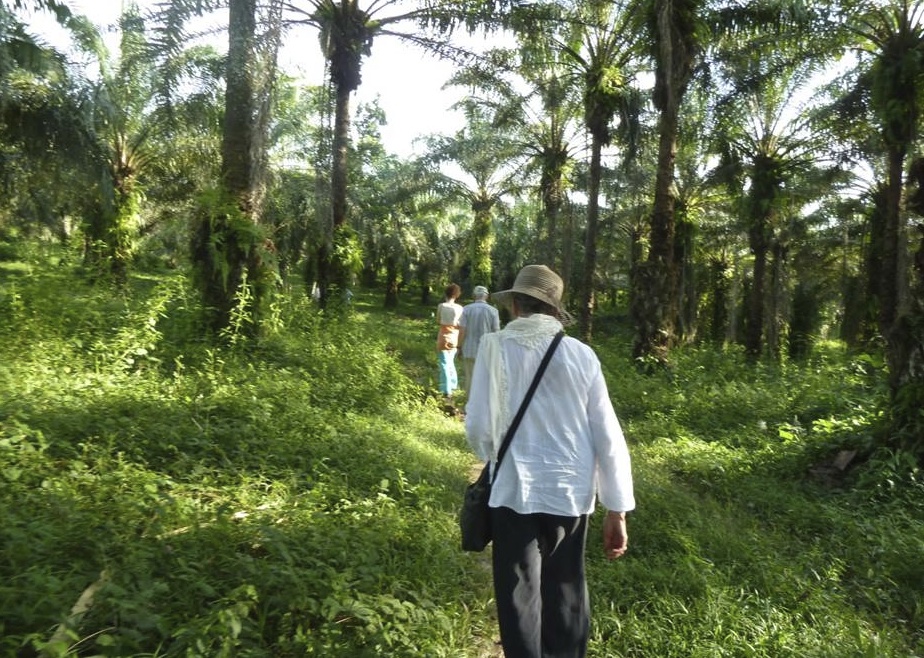 Sanaa then took us to a palm oil forest. It did not look like the regular plantations I had seen in photographs from Indonesia. There were several other species of tree, much bird song, and the trees were taller than I expected. We met a farmer there called Joseph, who demonstrated how he cuts down the bunches of fruit with a sharp knife at the end of a very long pole. The bunches of fruit were left in heaps at the side of the road to be collected for processing.
Sanaa then took us to a palm oil forest. It did not look like the regular plantations I had seen in photographs from Indonesia. There were several other species of tree, much bird song, and the trees were taller than I expected. We met a farmer there called Joseph, who demonstrated how he cuts down the bunches of fruit with a sharp knife at the end of a very long pole. The bunches of fruit were left in heaps at the side of the road to be collected for processing.
Sanaa also took us to a part of the forest where she was planting various other trees, notably cassava and cocoa, as shade for the development of the oil palms at different stages over a twenty-five year growing period. She told us how she was encouraging local farmers to adopt these sustainable methods. The other plants also gave their own useful crops, with cassava taking only six months to mature, and being replanted just from a single twig.
We were next taken to the headquarters of Serendipalm where several women were seated in groups in a large open shed, with substantial tin bowls full of the bunches of fruit, carried there on the head. The women were busy separating the individual fruits from the bunches, while others took away the remaining fibres for making into fertiliser. The women are paid on piece-rate and their individual sacks were labelled with their names. We had lunch with them in their canteen, which was a good chance to have a bit of a conversation.
We saw the first stages of the pressing process to produce the palm oil. It was still very cloudy as it emerged from the machine. It is red in colour and a feature of Ghanaian cuisine, notably in the rice dish ‘Red Red’.
Later we were taken to two local projects financed by Serendipalm from the Fairtrade premium. The first was a maternity clinic where local women can receive check-ups and have the services of a midwife when giving birth. The second project was a bore well in a local village which had been built at the request of local people, with particular attention paid to an older woman’s report of a former well she remembered in a particular spot from her childhood. This was investigated and found to be a good source of fresh clean water and we were delighted to see that this woman had been placed in charge of the well, controlling flow and distribution of extra water.
I felt that the visit to Serendipalm had taken me back to the roots of the Fair Trade movement, first experienced back in 1981 when I saw women in Bangladeshi villages weaving the jute sikas that were one of Traidcraft’s most popular early products. Now here I was in 2018, seeing the same security of a regular income prized by workers, seeing pride in the community projects made possible by Fair Trade conditions, and feeling a real sense of women’s work being valued and their voices heard.
Our next visit, while staying in Kumasi, was to the famous Kuapa Kokoo Farmers’ Union co-operative which supplies Divine chocolate. We started at the Co-operative House, a community centre in the village of New Koforidua, one of 200 communities supported by Kuapa Kokoo, where we met representatives of the local farmers’ co-operative. The Vice-chair and Treasurer were among several women farmers who had been delegated to meet us alongside their male colleagues. We asked each other questions and presented donations, predetermined by the tours in the cost of the trip, in thanks for their time. The village regards itself as Africa’s first Fairtrade Town after adapting the Fairtrade Foundation’s five critieria of FT Town status, influenced by links with Garstang, the UK’s first FT Town. We were able to chat to children in the community’s school as we left.
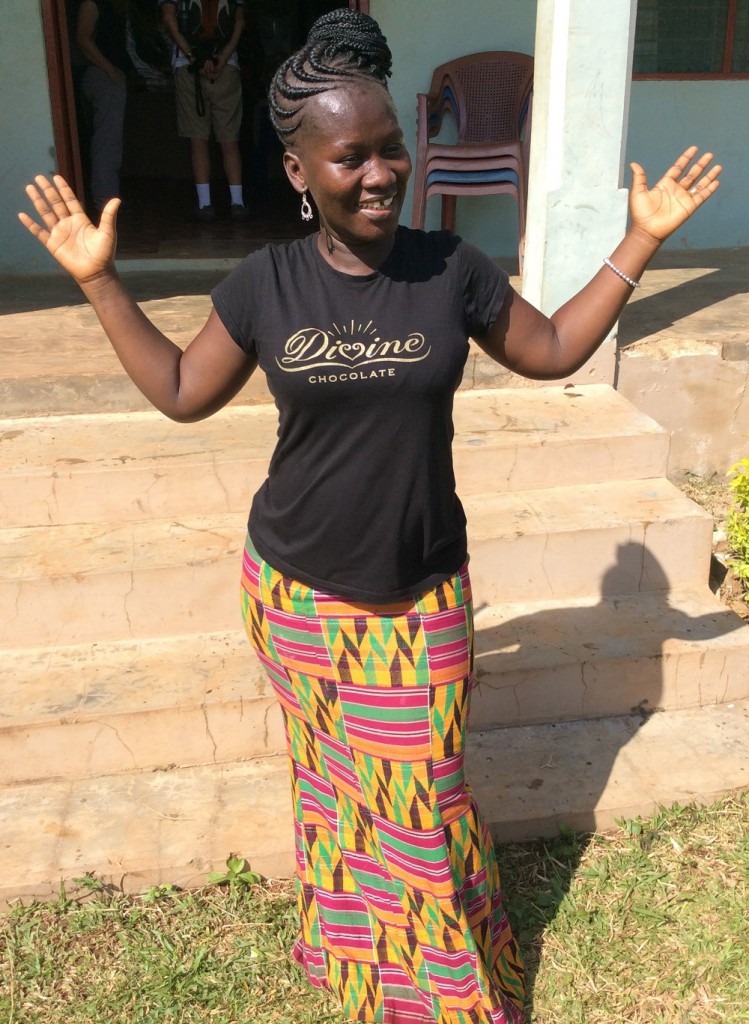 We started the next day at the headquarters of Kuapa Kokoo (KK) with a Powerpoint presentation by Esther, KK’s Communications Officer. KK represents about 100,000 farmers in 57 Co-operative groups. Esther showed the detailed structure of KK and the many levels of representation for which elections are held. Of the Board of Directors, four of the seven are women. We also met Luke, the CEO of the organisation, who was very welcoming.
We started the next day at the headquarters of Kuapa Kokoo (KK) with a Powerpoint presentation by Esther, KK’s Communications Officer. KK represents about 100,000 farmers in 57 Co-operative groups. Esther showed the detailed structure of KK and the many levels of representation for which elections are held. Of the Board of Directors, four of the seven are women. We also met Luke, the CEO of the organisation, who was very welcoming.
The structure of the co-operative allows for almost 500 long-term projects, including several wells, corn mills and schools. There is a range of committees, including welfare and gender. There is a Healthcare Programme with its own mobile clinic and medical staff. Importance is attached to a Child Labour Programme and a Labour Rights Project. A Productivity Enhancement Programme had involved the planting of 500,000 seedlings. All of these are financed by the Fairtrade Premium. The organisation also takes pride in its sustainable environmental interventions, including dynamic agro-forestry and diversification of crops. With heredity issues over passing on land, young women were being trained to take over from ageing farmers, a sign of the determination to empower women.
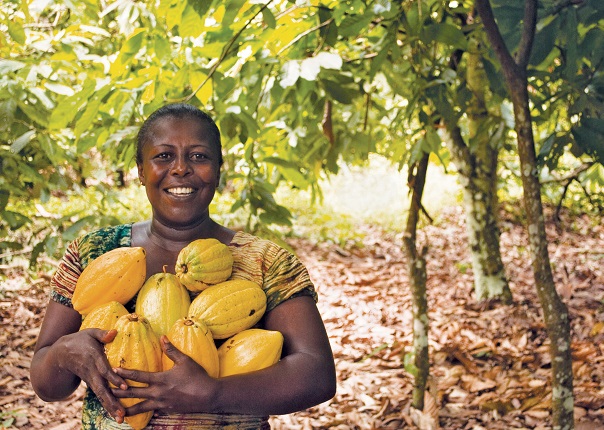
Esther took us to a beautiful forest of cocoa trees where we followed a farmer on an indistinct path through the dappled light, with the glowing yellow of the cocoa pods all around. On the floor of the forest were frequent patches of red petals from the ‘Christmas trees’, tall and protective of the much lower cocoa trees. We saw a patch of light in the distance and gradually arrived at a group of workers in a clearing busily opening up cocoa pods with machetes to extract the beans, which were covered in a white sticky sap.
There was much laughter and the rejected pods were flung into a heap with the discarded empty ones to be turned into compost. Some of the men demonstrated how they cut the cocoa pods from the trees with long-handled machetes. We were next shown how the beans are fermented for about a week in heaps in the forest covered by black plastic and branches. You can smell their location! They are turned two or three times in the week and at the end of that time the white covering has disappeared.
The next stage is to dry the beans in the sun for about two weeks. This is done on racks in villages or on the ground – it is a common sight in the region. The beans are turned frequently and sub-standard ones removed – we had a go. Next, we saw where the beans are weighed and piece-rates worked out from a record book. We visited the local school in that particular village, where we presented a Welsh flag, well-received because of Ryan Giggs! Our last Kuapa Kokoo visit was to the depot where the 64 Kilo sacks of beans are stacked to the ceiling and loaded for export, up to 700 at a time.
Kuapa Kokoo prides itself on the empowerment of women and its community projects. It is a highly-organised and structured company. Like many Fairtrade certified organisations, both Serendipalm and Kuapa Kokoo sell as much as they can to Fairtrade companies, both in the UK and in Europe, but there is never enough demand, so they also supply Rainforest Alliance and commercial outlets.
Our third Fair Trade visit on the holiday was to the Volta River Estates Ltd Banana Company, which supplies FT bananas mainly to UK supermarkets, including Sainsbury’s, Waitrose, M&S, and the Co-op. Again, they sell their surplus as non-FT, sometimes to Fyffes. Their pride in their community projects, particularly supplying IT equipment and new buildings to schools, was very evident, as was their encouragement of women. We were particularly pleased to meet one woman tractor driver who had been recruited from the banana-washing section in the processing plant and given training to become manager of the compost plant producing fertiliser from left-over banana tree stalks, wheat stalks, and chicken manure. She was turning the drying heaps of these and mixing them as she drove along.
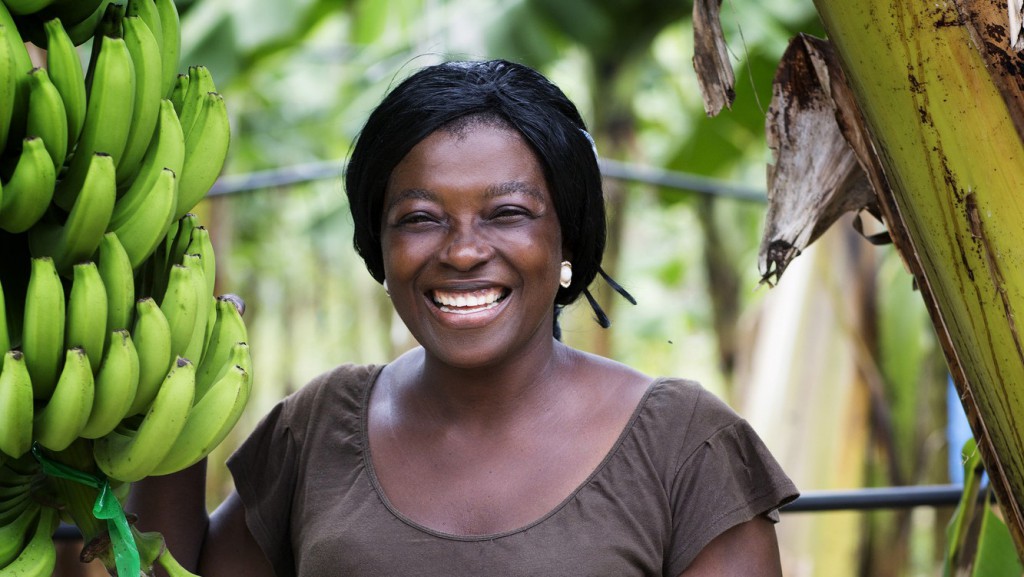
This trip was a re-affirming experience for me, showing strongly the roots of the Fair Trade movement still in action in people’s lives, particularly in the empowerment of women and projects to benefit whole communities.
For more information on our Ghana tour and to find out how to visit click here to browse our website and download a detailed tour dossier. Alternatively contact Hannah by calling 0191 2651110 or email [email protected]
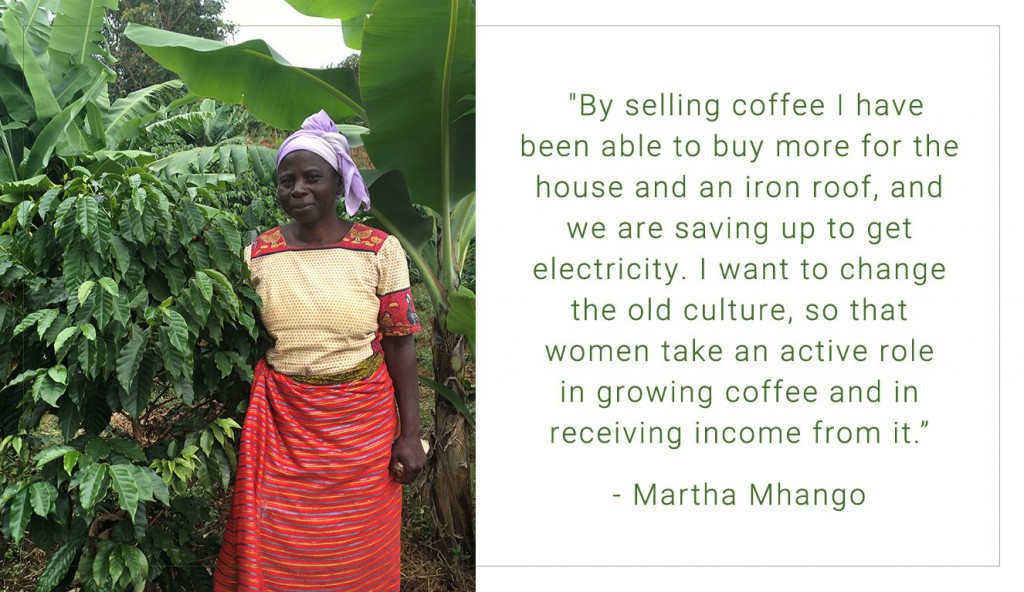 Martha is a huge advocate for the Union’s “Women in Coffee” programme, as she has been able to provide for her family in a similar way that a man in her community can.
Martha is a huge advocate for the Union’s “Women in Coffee” programme, as she has been able to provide for her family in a similar way that a man in her community can. 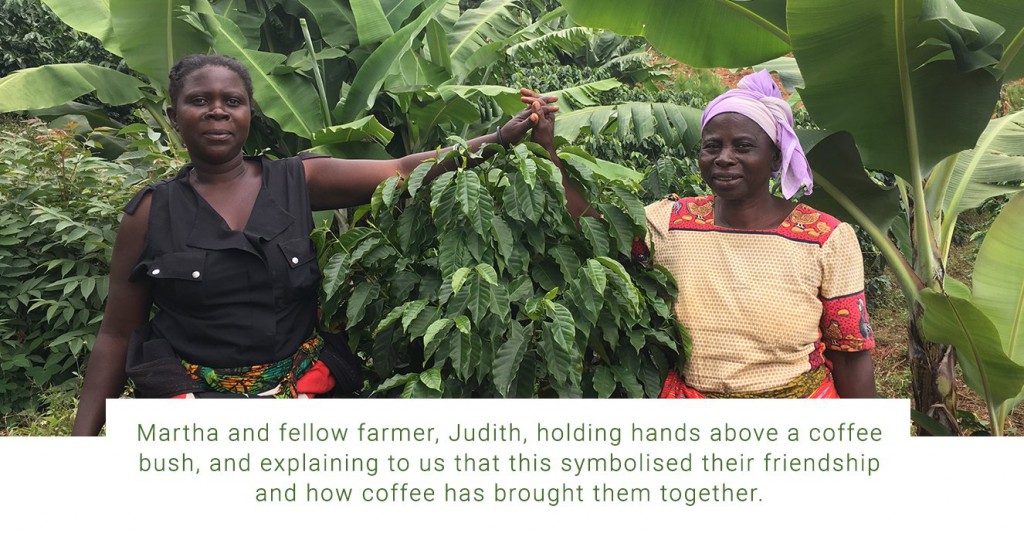

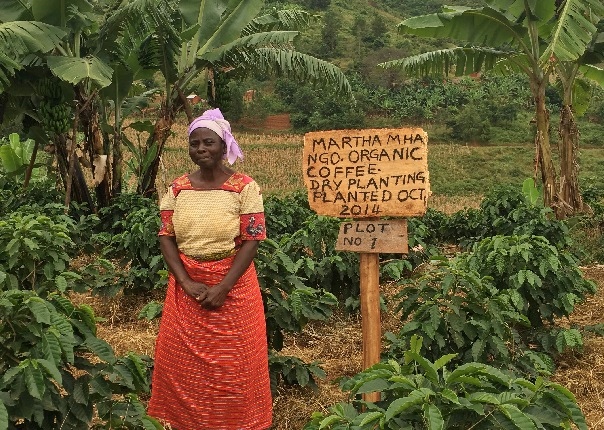

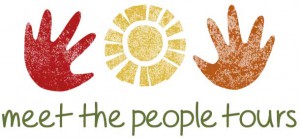 Meet The People Tours offer small groups of people an opportunity to gain an authentic insight into a country’s people and culture, visiting fair trade producers and development projects far removed from any tourist trail. You’ll experience life in local communities and enjoy the sights, sounds and tastes of a country’s natural wonders and cultural heritage.
Meet The People Tours offer small groups of people an opportunity to gain an authentic insight into a country’s people and culture, visiting fair trade producers and development projects far removed from any tourist trail. You’ll experience life in local communities and enjoy the sights, sounds and tastes of a country’s natural wonders and cultural heritage.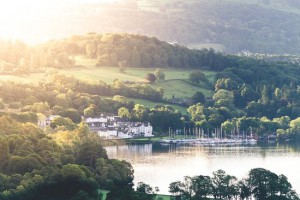 Located in the heart of the Lake District National Park UNESCO World Heritage Site, Low Wood Bay Resort & Spa has one of the most enviable locations in the world. The view from the resort over England’s longest lake, fells and mountains is truly breath-taking.
Located in the heart of the Lake District National Park UNESCO World Heritage Site, Low Wood Bay Resort & Spa has one of the most enviable locations in the world. The view from the resort over England’s longest lake, fells and mountains is truly breath-taking. 2019 Apple iPad Air 10.5”, A12 Bionic, iOS, Wi-Fi, 64GB, Space Grey
2019 Apple iPad Air 10.5”, A12 Bionic, iOS, Wi-Fi, 64GB, Space Grey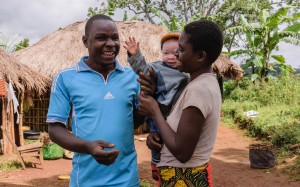
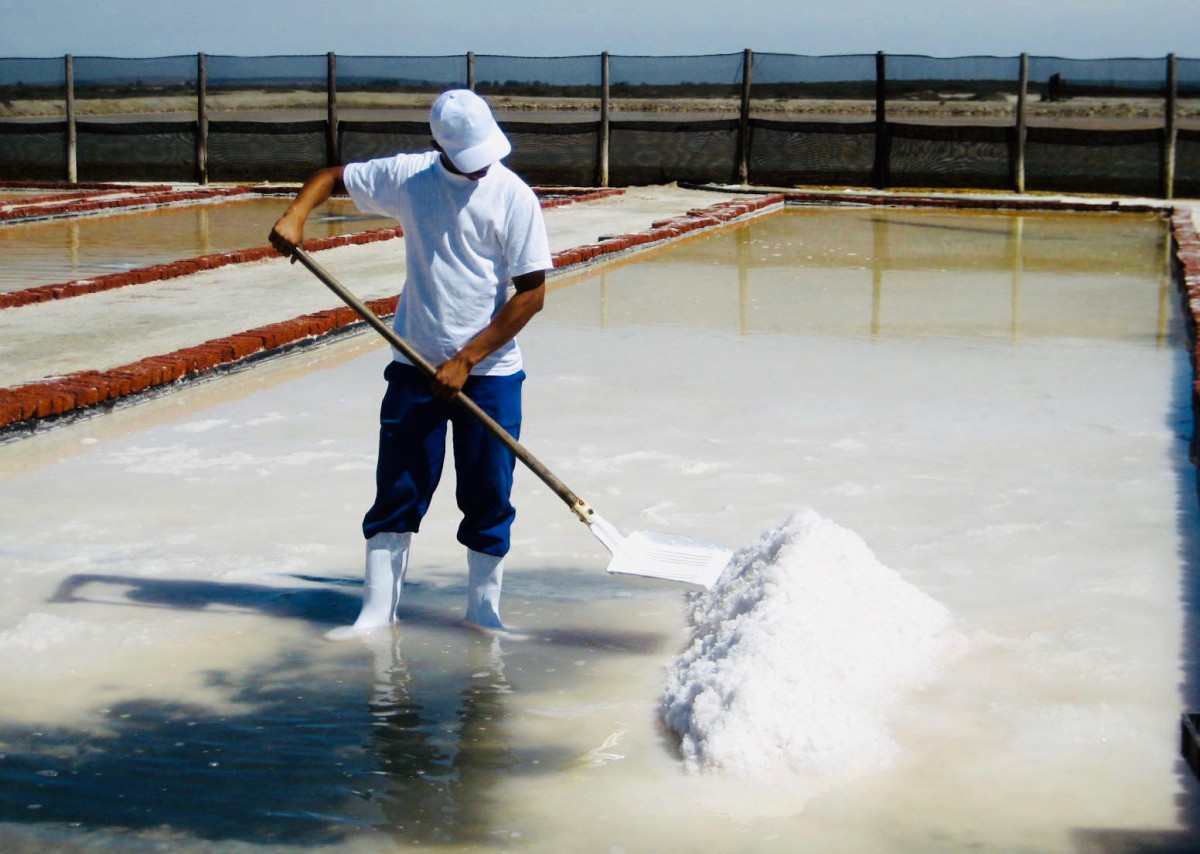
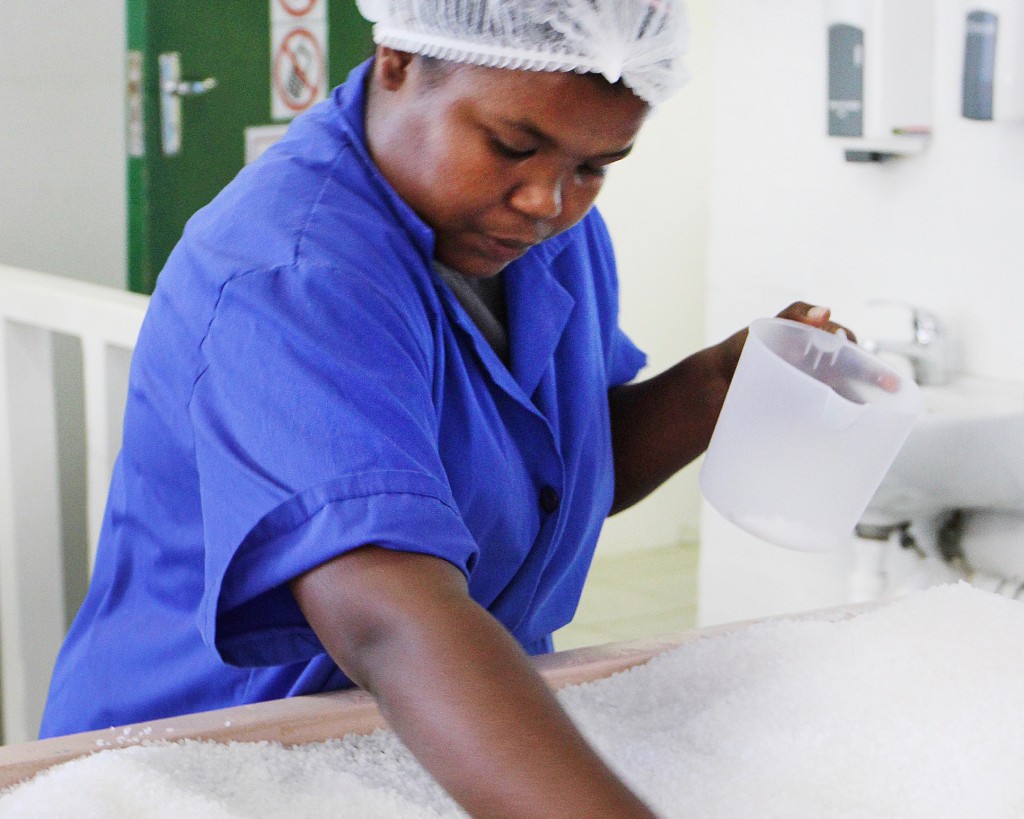
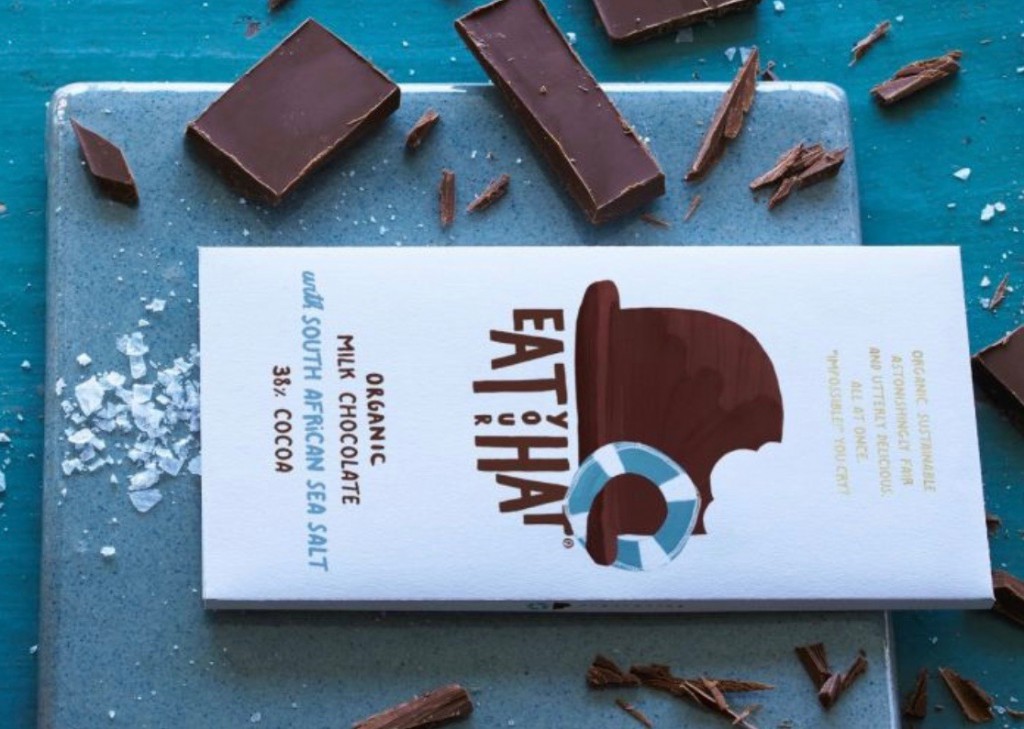
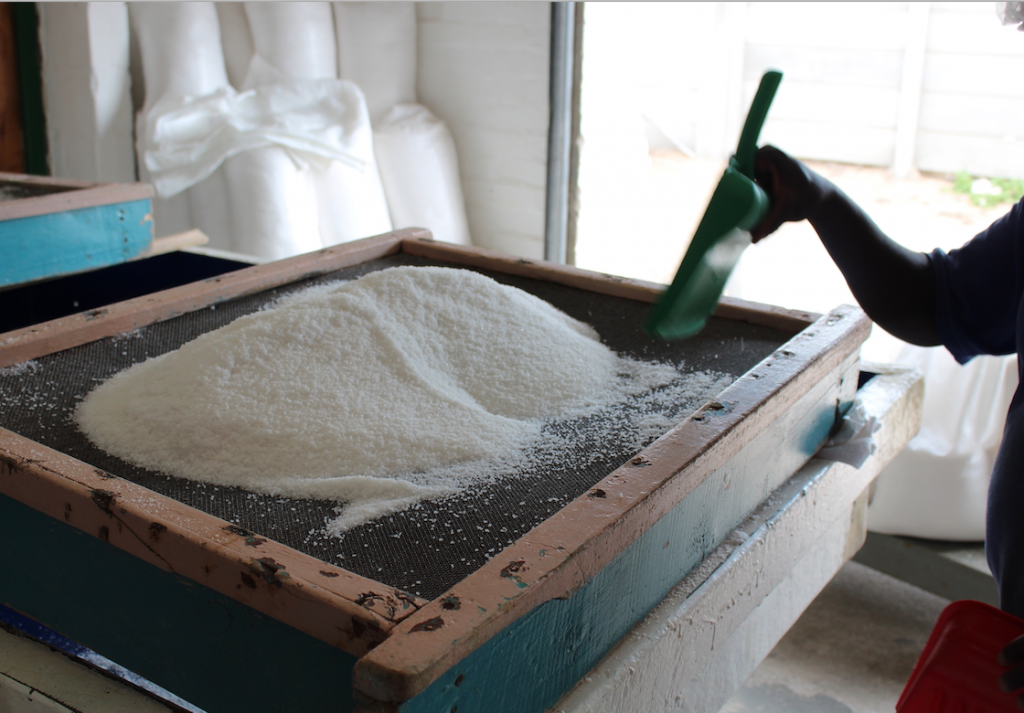
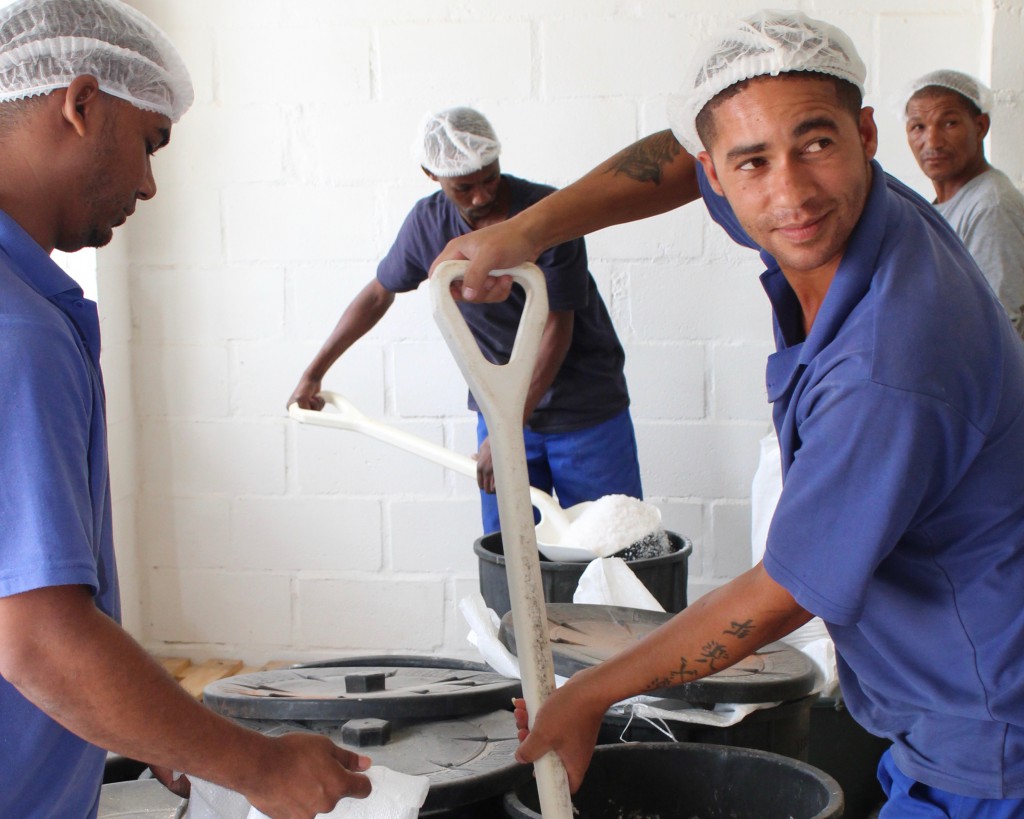
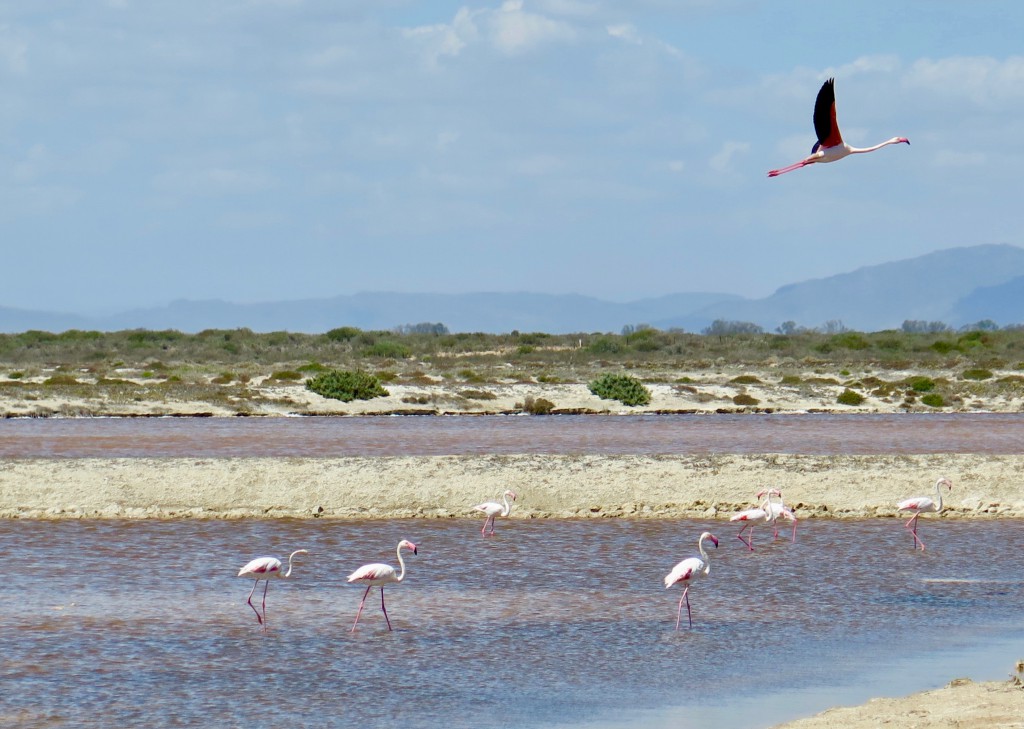
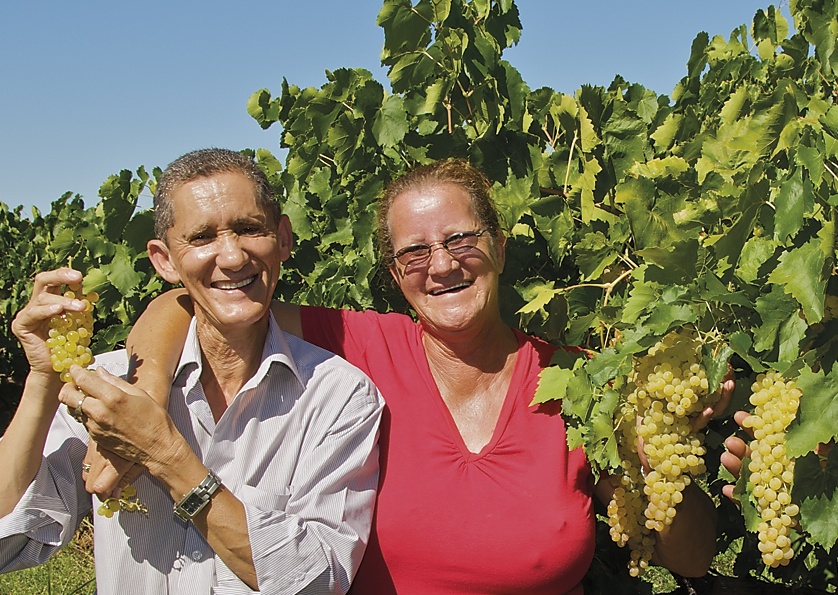
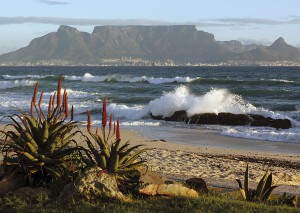
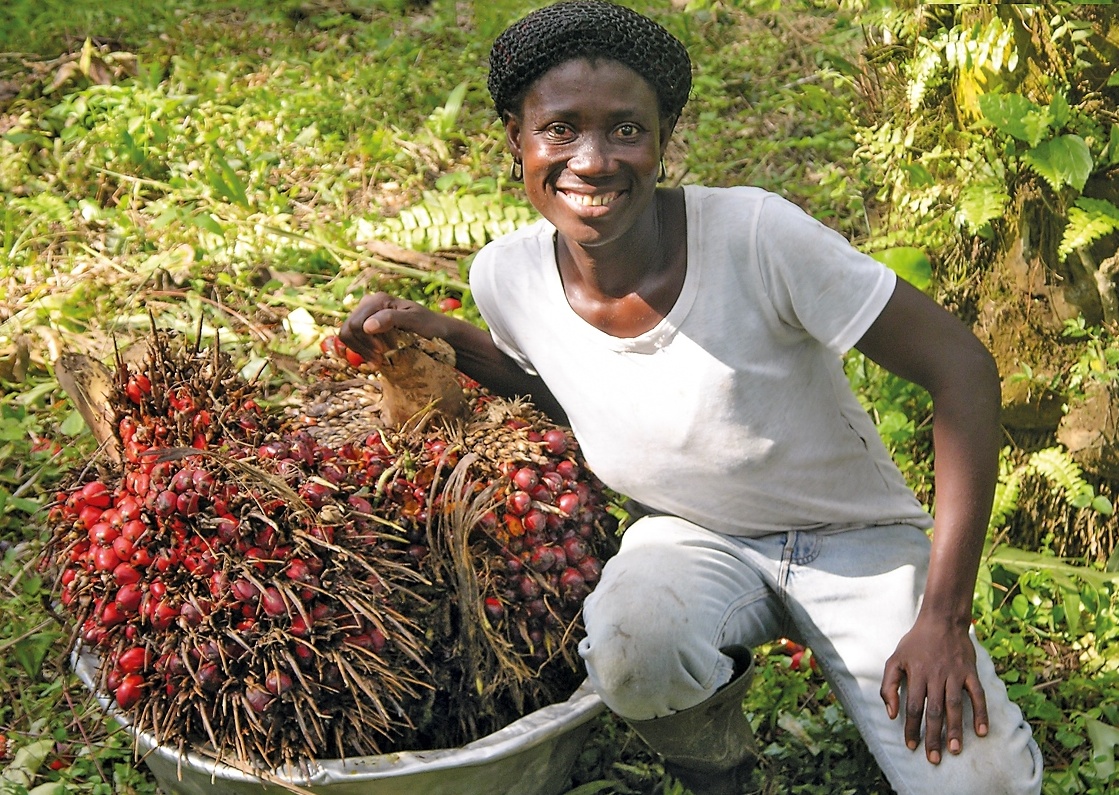
 Sanaa then took us to a palm oil forest. It did not look like the regular plantations I had seen in photographs from Indonesia. There were several other species of tree, much bird song, and the trees were taller than I expected. We met a farmer there called Joseph, who demonstrated how he cuts down the bunches of fruit with a sharp knife at the end of a very long pole. The bunches of fruit were left in heaps at the side of the road to be collected for processing.
Sanaa then took us to a palm oil forest. It did not look like the regular plantations I had seen in photographs from Indonesia. There were several other species of tree, much bird song, and the trees were taller than I expected. We met a farmer there called Joseph, who demonstrated how he cuts down the bunches of fruit with a sharp knife at the end of a very long pole. The bunches of fruit were left in heaps at the side of the road to be collected for processing.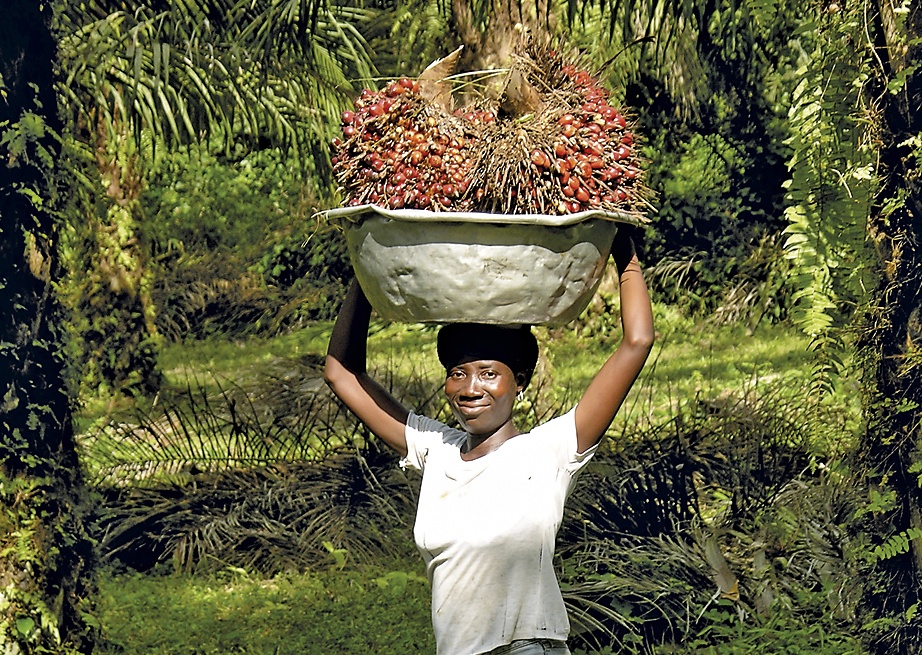
 We started the next day at the headquarters of Kuapa Kokoo (KK) with a Powerpoint presentation by Esther, KK’s Communications Officer. KK represents about 100,000 farmers in 57 Co-operative groups. Esther showed the detailed structure of KK and the many levels of representation for which elections are held. Of the Board of Directors, four of the seven are women. We also met Luke, the CEO of the organisation, who was very welcoming.
We started the next day at the headquarters of Kuapa Kokoo (KK) with a Powerpoint presentation by Esther, KK’s Communications Officer. KK represents about 100,000 farmers in 57 Co-operative groups. Esther showed the detailed structure of KK and the many levels of representation for which elections are held. Of the Board of Directors, four of the seven are women. We also met Luke, the CEO of the organisation, who was very welcoming.
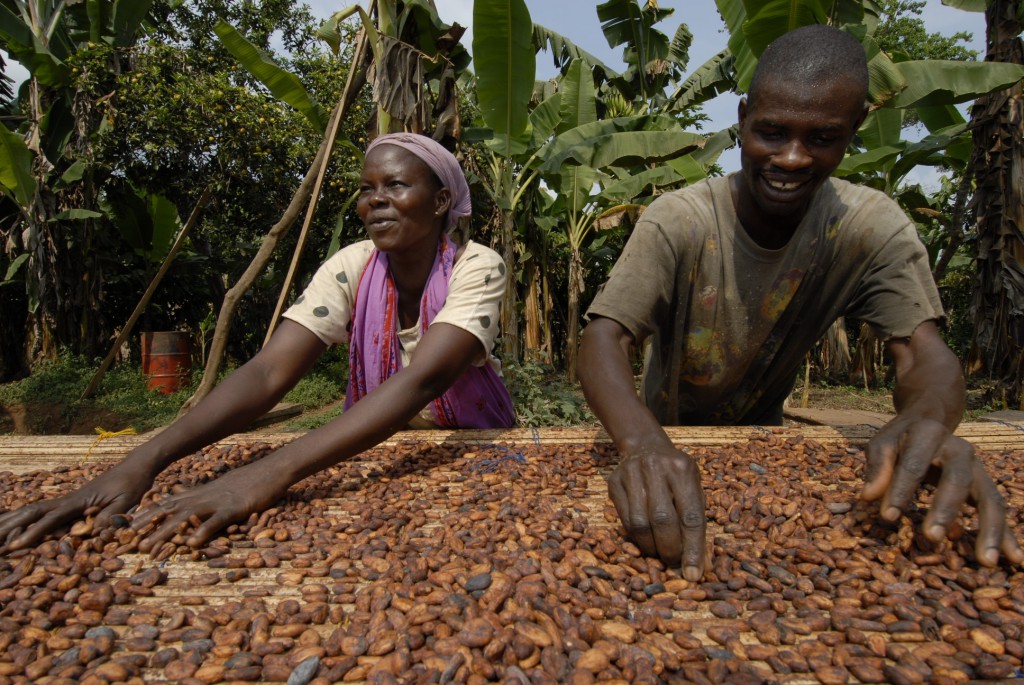


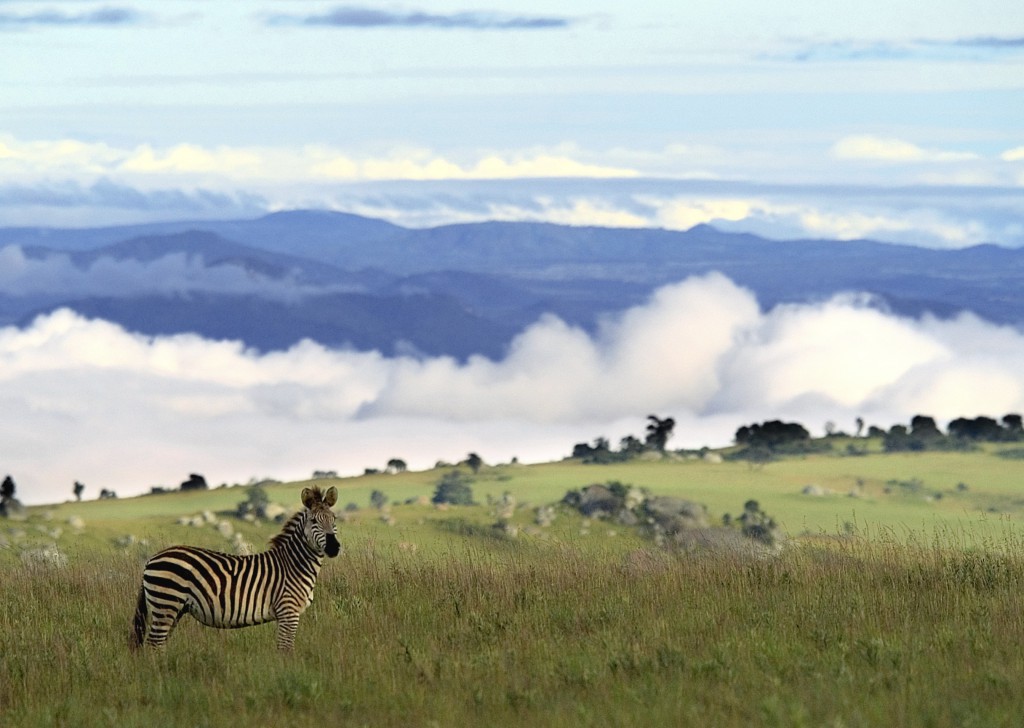
![Malawi (16)[2]](https://www.meetthepeopletours.co.uk/blog/wp-content/uploads/2019/01/Malawi-162-1024x768.jpeg)
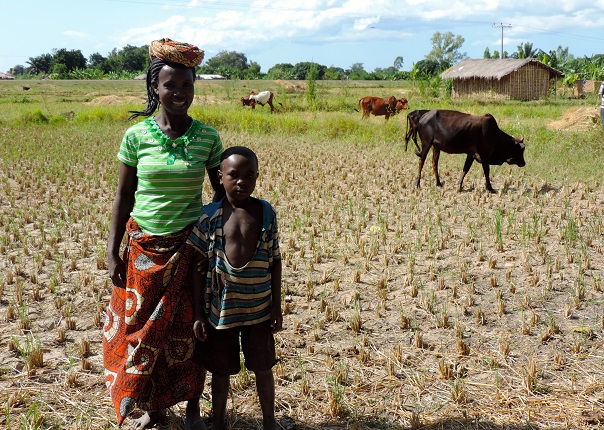 If you’ve been captured by the delicious aroma of Mzuzu coffee or want to see the rice harvest for yourself then join us in June as we travel to meet the people!
If you’ve been captured by the delicious aroma of Mzuzu coffee or want to see the rice harvest for yourself then join us in June as we travel to meet the people!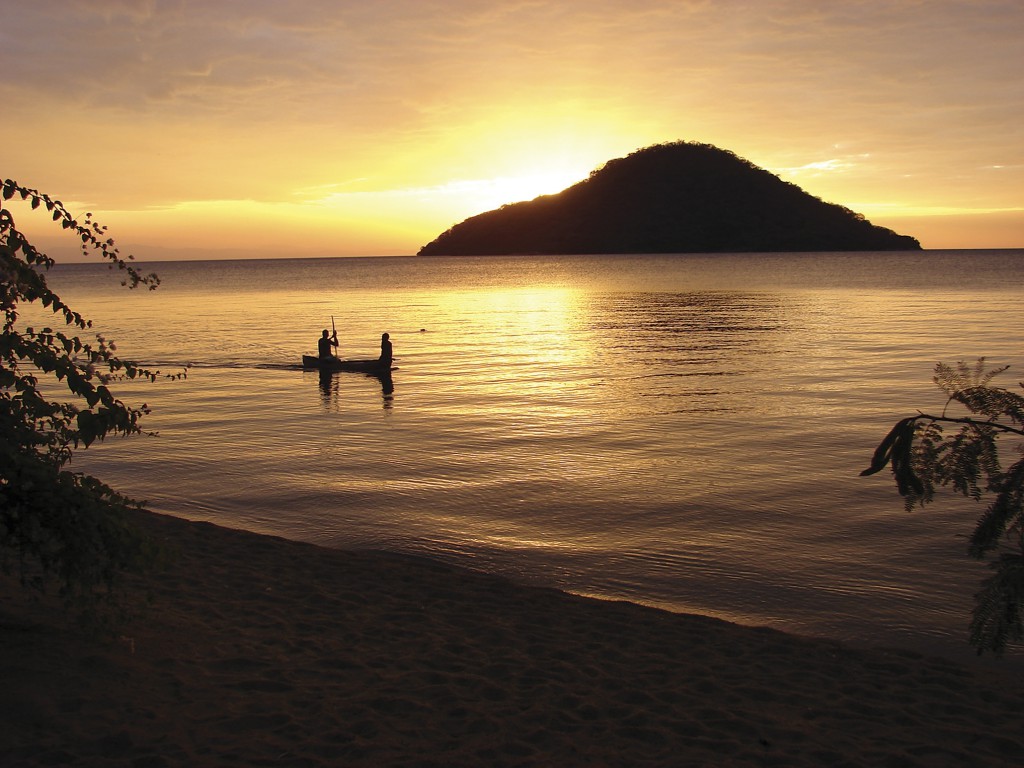
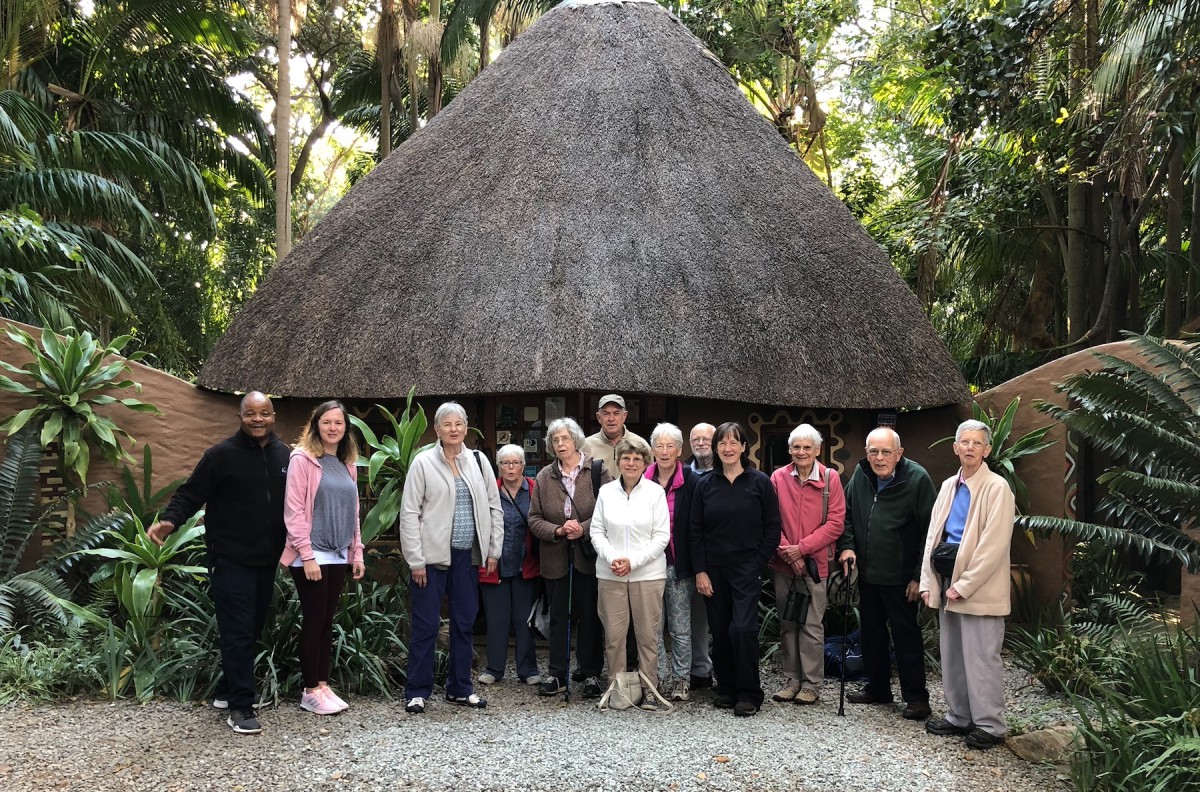
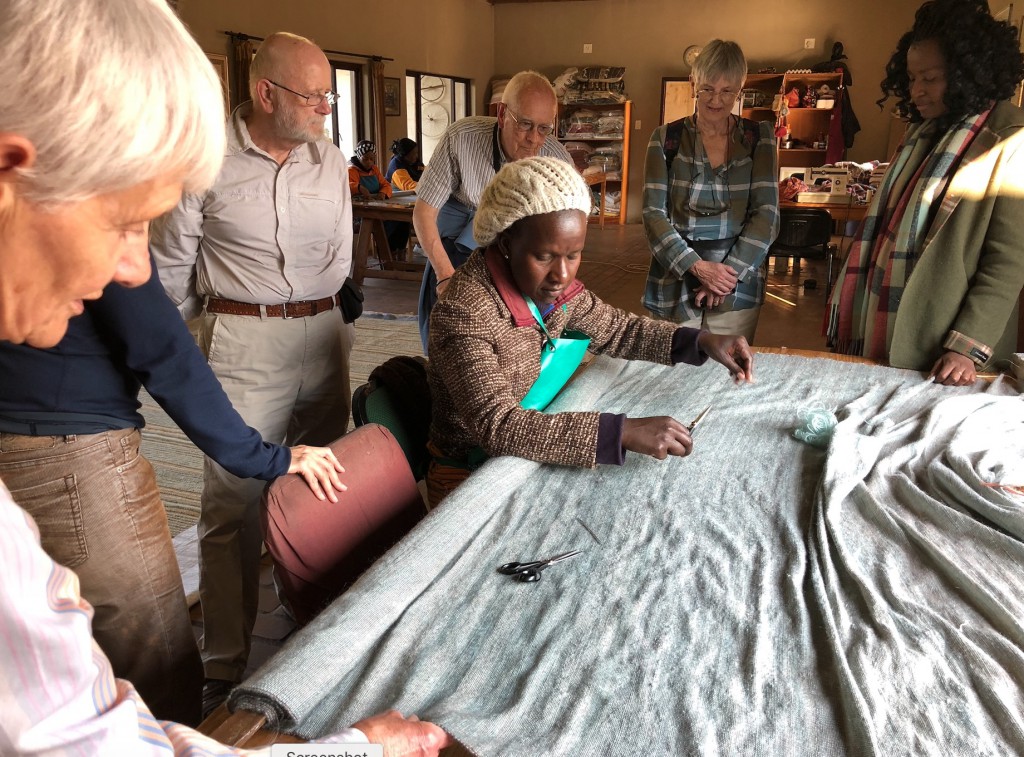
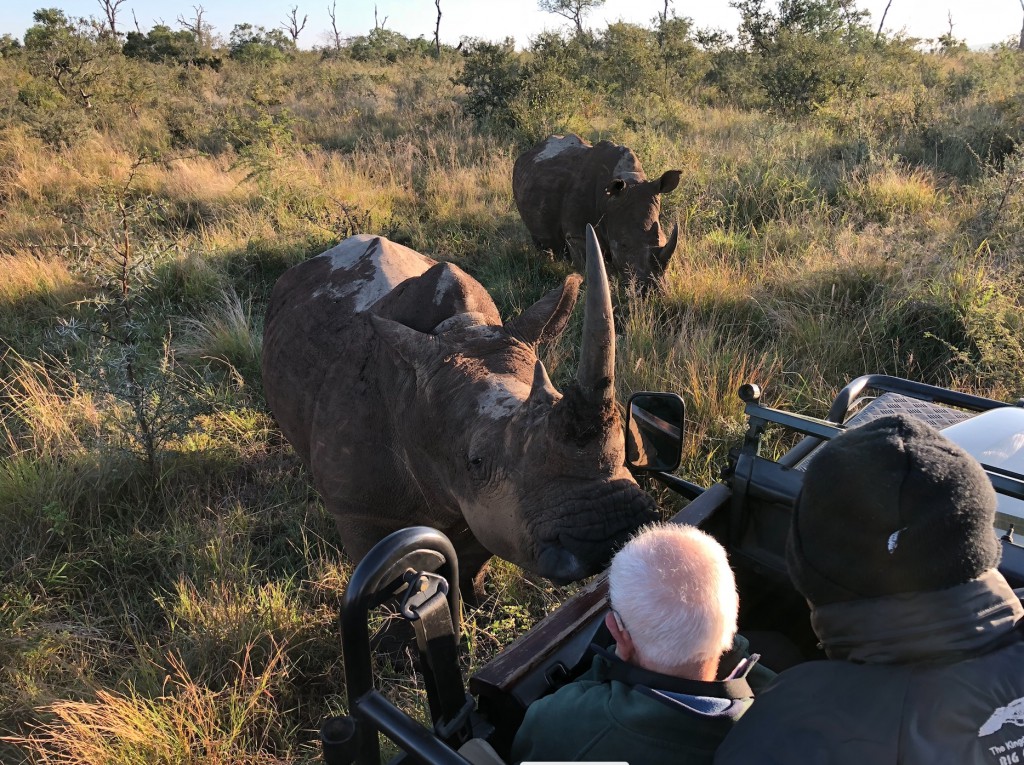 The unforgettable experiences were never ending, but the real purpose of my visit to Swaziland was to learn the stories behind the products and get a better understanding about fair trade and its effects in developing countries. It was incredible to see some of the products being made on some of our visits. We encountered great quality and imagination, exceptional skills, ingenuity, courage and determination.
The unforgettable experiences were never ending, but the real purpose of my visit to Swaziland was to learn the stories behind the products and get a better understanding about fair trade and its effects in developing countries. It was incredible to see some of the products being made on some of our visits. We encountered great quality and imagination, exceptional skills, ingenuity, courage and determination.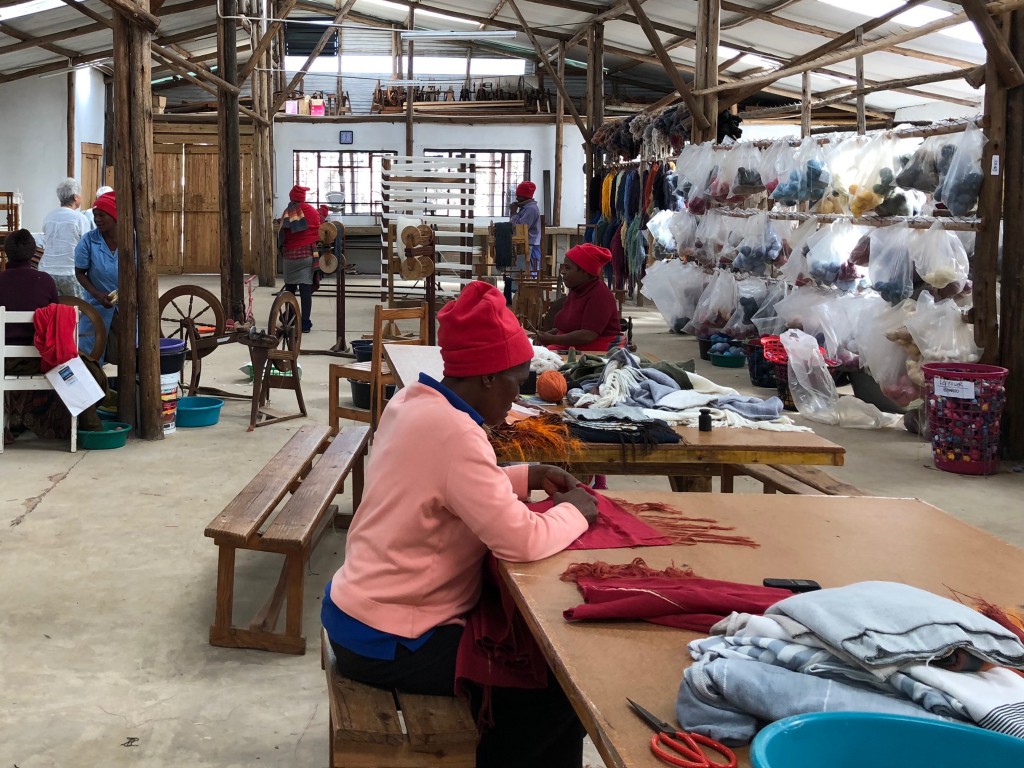 On Day 3, the visit to Tintsaba was inspirational. To see the Sisal plant being stripped, washed, spun, dyed and woven into beautiful jewellery and homeware was fascinating. Over 800 women work for Tintsaba, often from their own homes whilst caring for their families. We learned how mohair is brushed, rolled and spun into yarn to make gorgeous fabrics at Coral Stephens; products that will last a lifetime and amazing skills that are being taught to younger generations.
On Day 3, the visit to Tintsaba was inspirational. To see the Sisal plant being stripped, washed, spun, dyed and woven into beautiful jewellery and homeware was fascinating. Over 800 women work for Tintsaba, often from their own homes whilst caring for their families. We learned how mohair is brushed, rolled and spun into yarn to make gorgeous fabrics at Coral Stephens; products that will last a lifetime and amazing skills that are being taught to younger generations.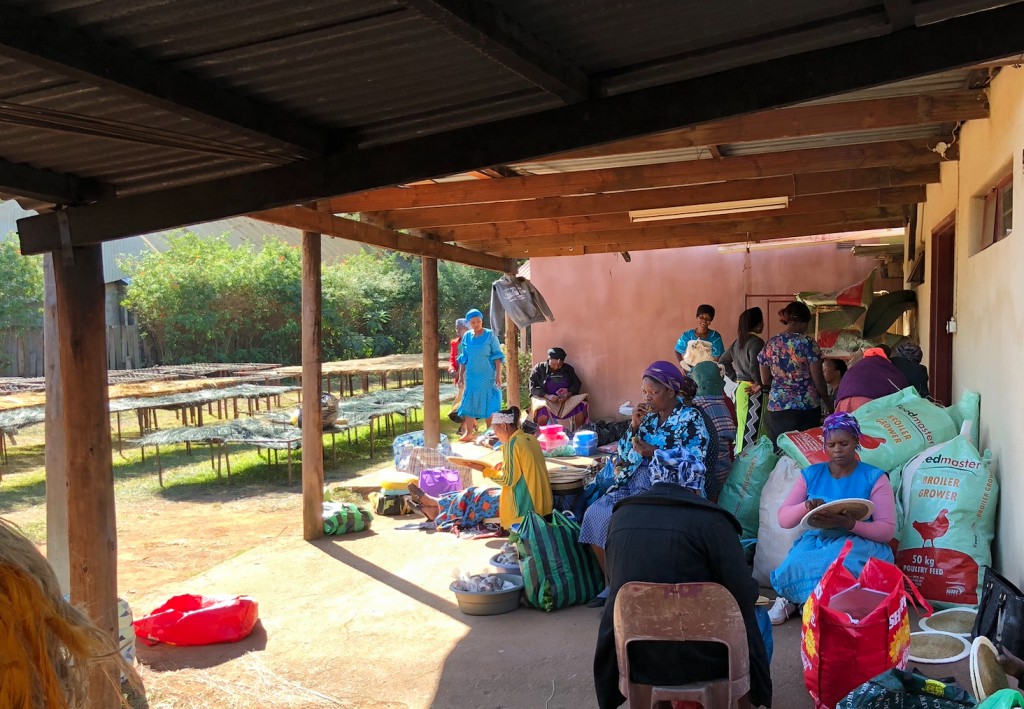 On Day 5 we visited Ngwenya Glass, who are renowned for their sustainable credentials. They considered every aspect of their business and reused or recycled everything they could. We met Black Mamba’s partner group, Guba, who teach permaculture and sustainable farming in village communities. All of the herbs and spices that are used in the sauces are grown by graduates of the Guba training courses. On Day 9 we met Gone Rural, who provide work to hundreds of women in the surrounding areas. They drive to and from each community collecting and swapping raw grass for dyed grass, for women to then weave into homewares for a fair price.
On Day 5 we visited Ngwenya Glass, who are renowned for their sustainable credentials. They considered every aspect of their business and reused or recycled everything they could. We met Black Mamba’s partner group, Guba, who teach permaculture and sustainable farming in village communities. All of the herbs and spices that are used in the sauces are grown by graduates of the Guba training courses. On Day 9 we met Gone Rural, who provide work to hundreds of women in the surrounding areas. They drive to and from each community collecting and swapping raw grass for dyed grass, for women to then weave into homewares for a fair price.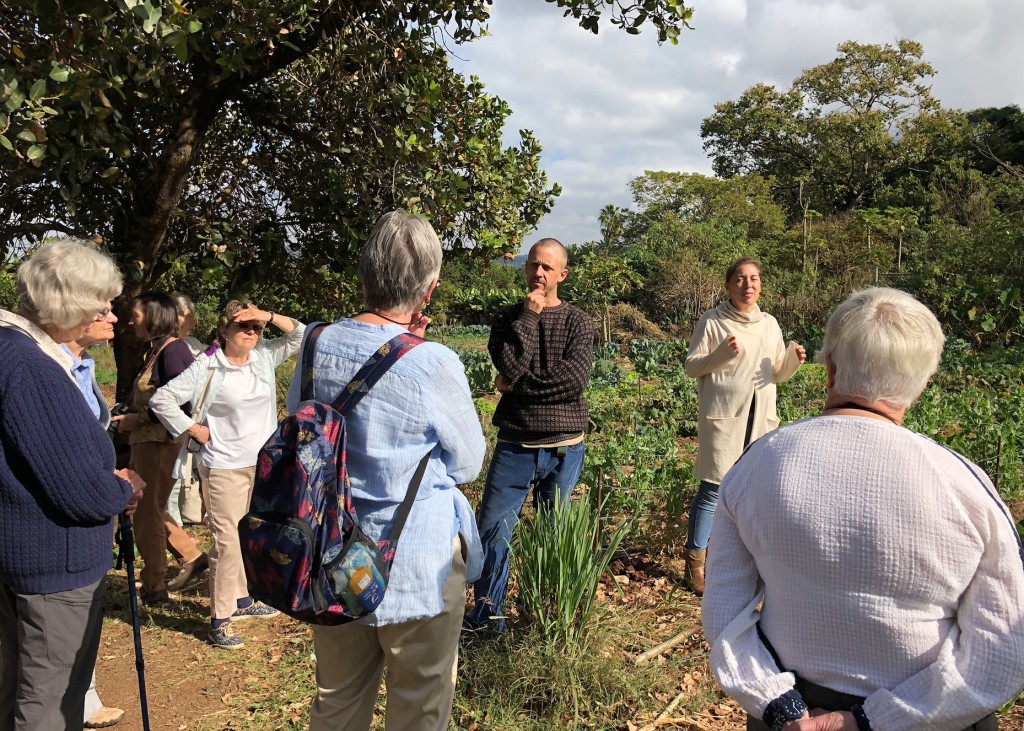
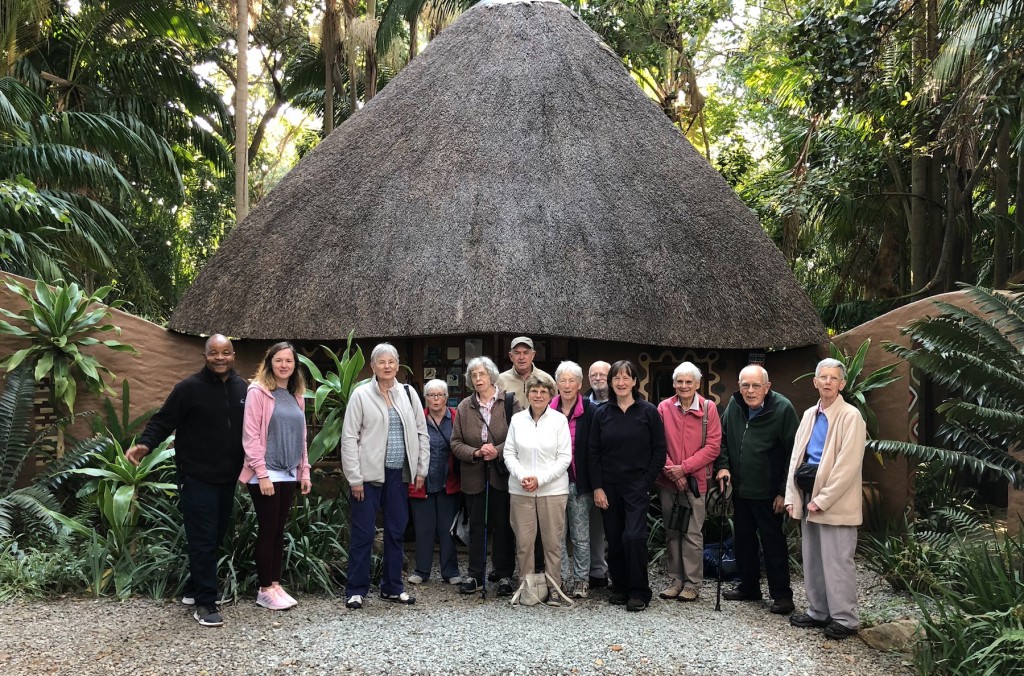
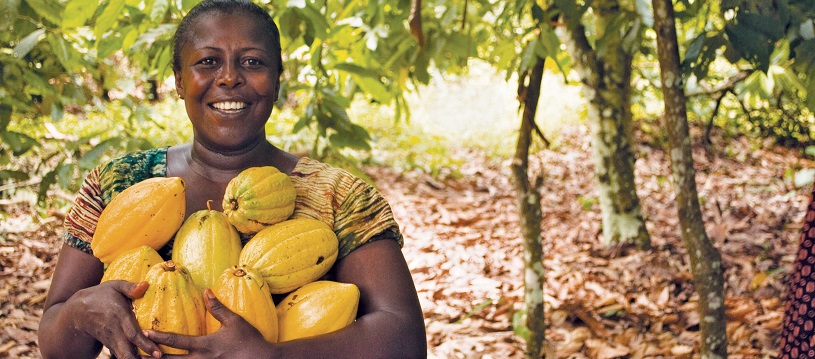
 I have bought Fairtrade products for some time, and was interested to see how Fairtrade goods are produced, and to learn more about what Fairtrade means for individual producers. My Ghanaian friend Rev Josephine Mate-Kole Ankrah was interested too, and as I was visiting her congregation in Ghana, I thought a Meet the People Tour would be a good opportunity for us to visit some Fairtrade producers.
I have bought Fairtrade products for some time, and was interested to see how Fairtrade goods are produced, and to learn more about what Fairtrade means for individual producers. My Ghanaian friend Rev Josephine Mate-Kole Ankrah was interested too, and as I was visiting her congregation in Ghana, I thought a Meet the People Tour would be a good opportunity for us to visit some Fairtrade producers.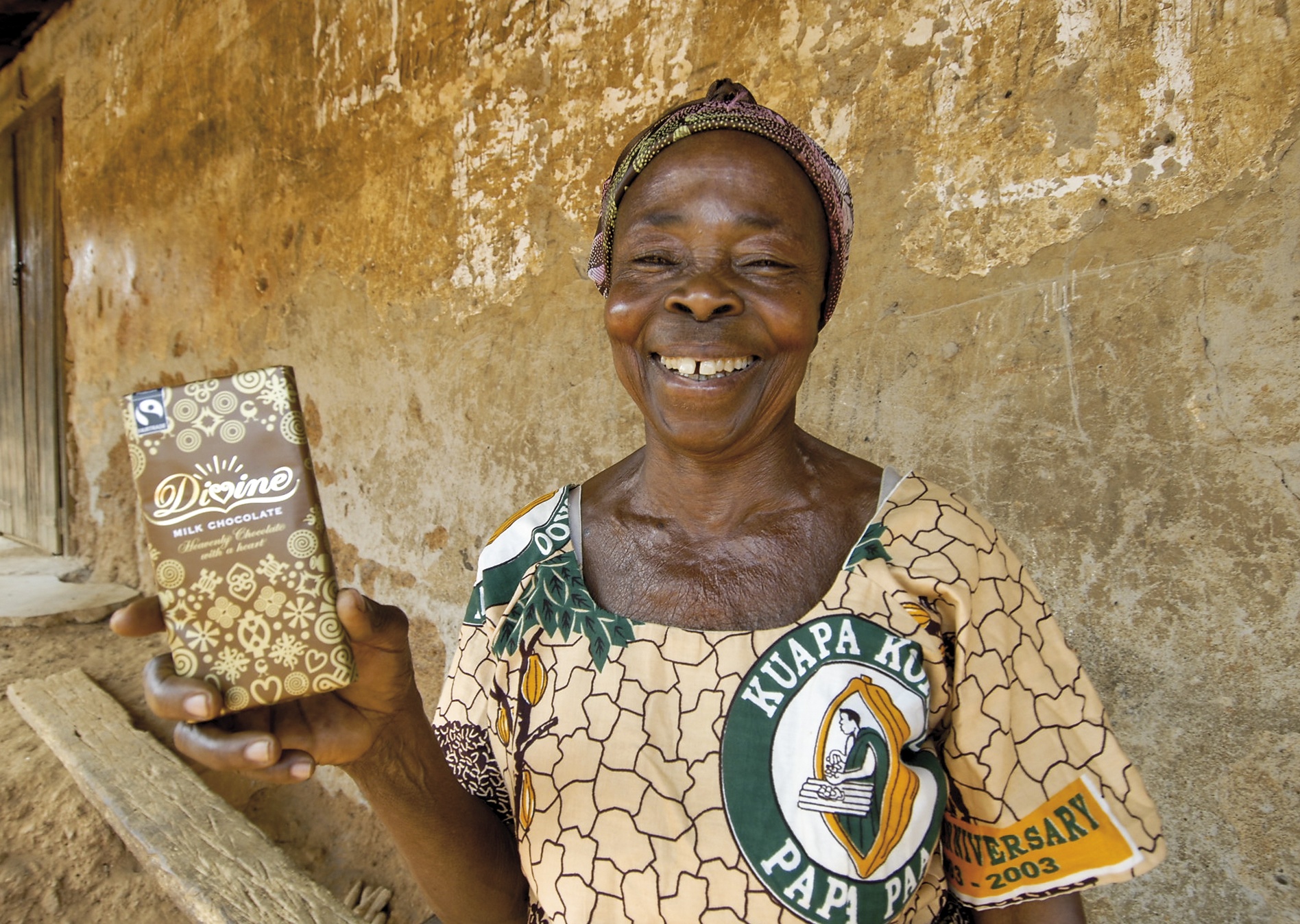 We saw the current crop of cocoa beans drying in the sun ready to be packed into bags and sent on for processing (processing into chocolate that the farmers have never tasted!). They took us to visit one of the farms where we are able to harvest a pod from the tree, and to see how they work with their trees and crops.
We saw the current crop of cocoa beans drying in the sun ready to be packed into bags and sent on for processing (processing into chocolate that the farmers have never tasted!). They took us to visit one of the farms where we are able to harvest a pod from the tree, and to see how they work with their trees and crops.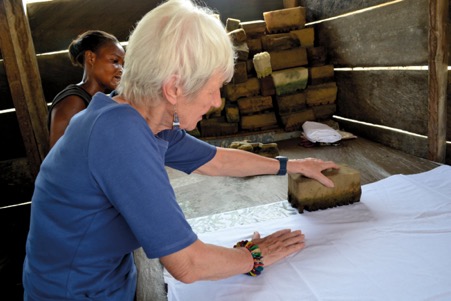 This is only a fraction of what we were able to see and experience during the 10 days of our Fairtrade experience. In returning to the question “why buy Fairtrade goods?”, after my visit I would say: to give individuals and communities the respect and dignity of a fair price for their products, which leads to life changing opportunities.
This is only a fraction of what we were able to see and experience during the 10 days of our Fairtrade experience. In returning to the question “why buy Fairtrade goods?”, after my visit I would say: to give individuals and communities the respect and dignity of a fair price for their products, which leads to life changing opportunities.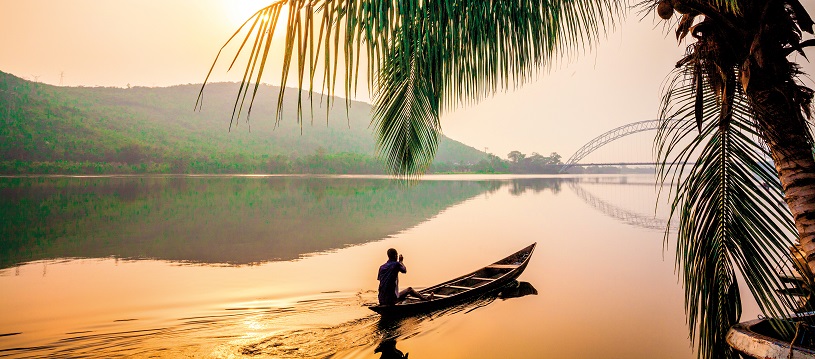
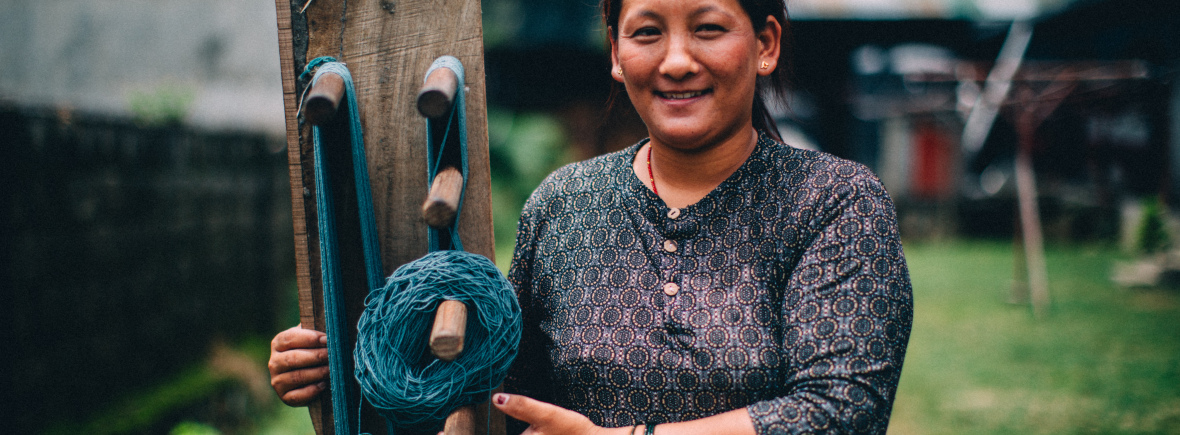

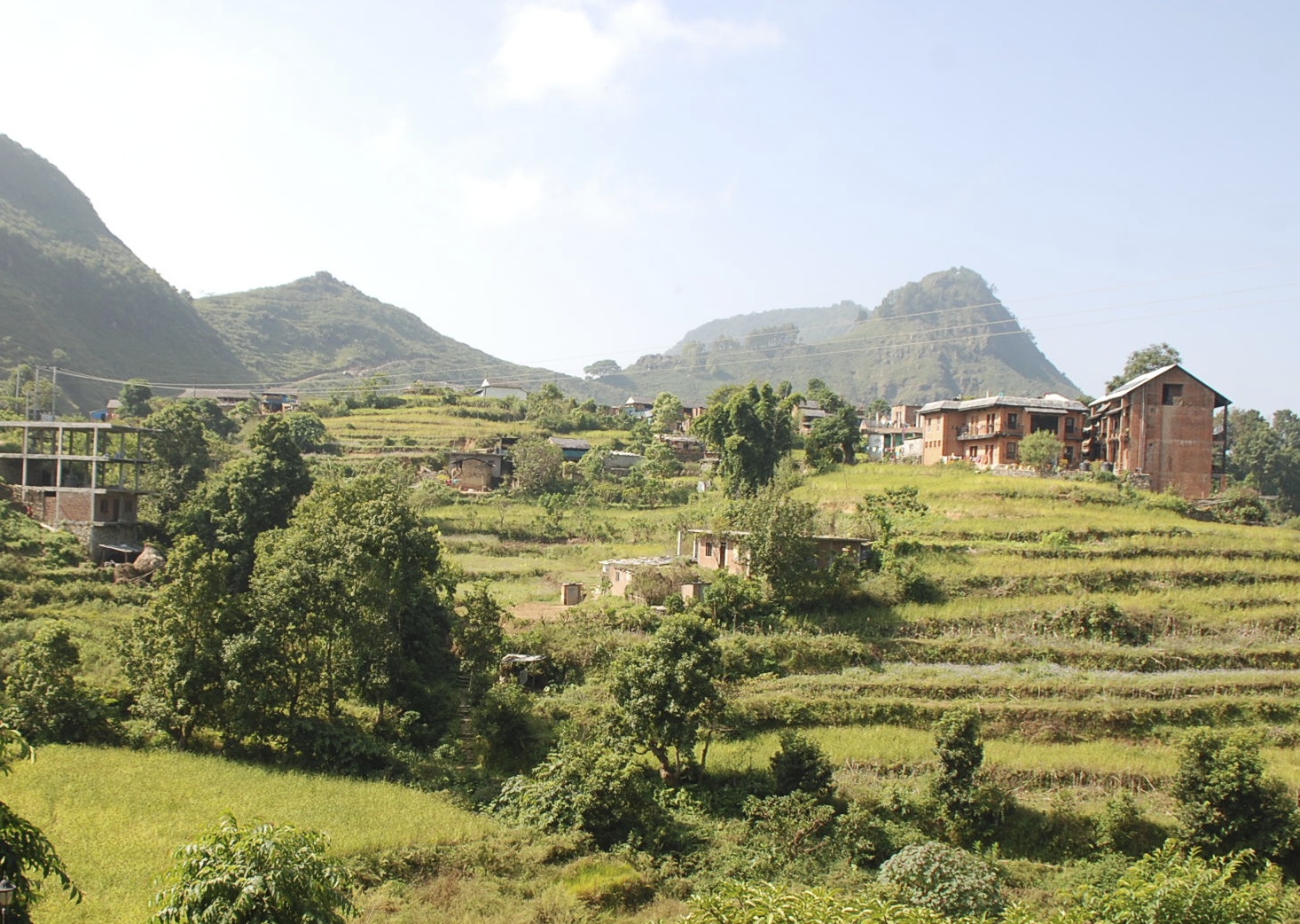 During the tour our group got to meet a range of traditional artisans, from paper-crafters and ceramicists to expert weavers and knitters. My job requires me to write about Traidcraft producers a lot, but it’s a completely different experience to visit them in person. The first group we visited was the Women’s Skills Development Organization in Pokhara. We were given a tour around the site and the chance to watch the artisans at work, from the spinning and dyeing to weaving and finishing. Since 1975, this not-for-profit programme has been supporting women facing significant social and economic hardships, offering them free training and employment opportunities in a social and safe environment.
During the tour our group got to meet a range of traditional artisans, from paper-crafters and ceramicists to expert weavers and knitters. My job requires me to write about Traidcraft producers a lot, but it’s a completely different experience to visit them in person. The first group we visited was the Women’s Skills Development Organization in Pokhara. We were given a tour around the site and the chance to watch the artisans at work, from the spinning and dyeing to weaving and finishing. Since 1975, this not-for-profit programme has been supporting women facing significant social and economic hardships, offering them free training and employment opportunities in a social and safe environment.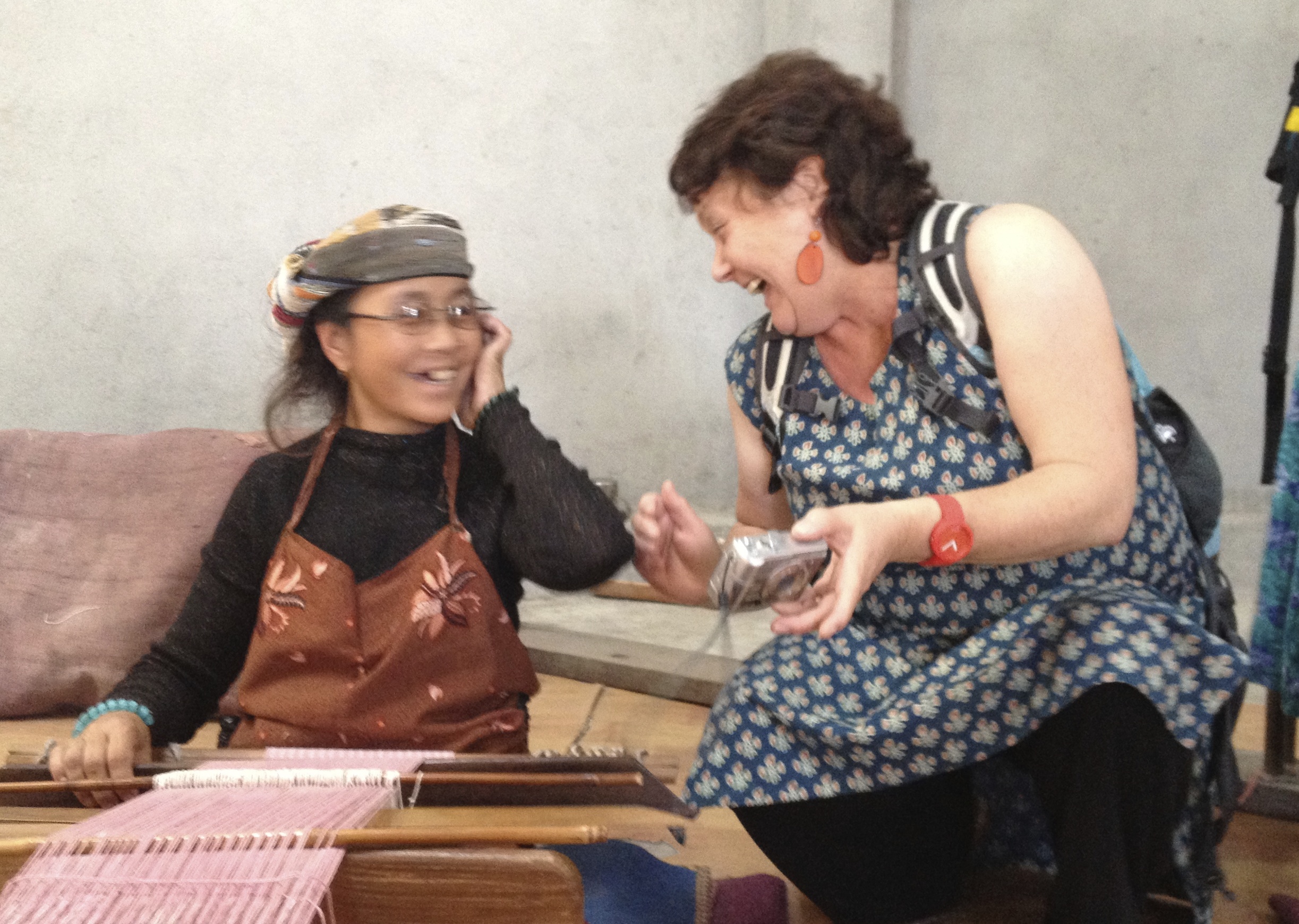 Next, we visited Kumbeshwar Technical School (KTS), an inspirational organisation offering training and employment to craftspeople in Kathmandu. Since starting out, Kumbeshwar have set up a primary school to educate local disadvantaged children, and even an orphanage! It was incredibly moving to see how happy the children were and to hear stories about the craftspeople who started out with very little and ended up working for Kumbeshwar long-term, supporting families of their own with their income. We’ll be selling a few woven products from Kumbeshwar in our Autumn collection, so you can look forward to hearing lots more about this organisation.
Next, we visited Kumbeshwar Technical School (KTS), an inspirational organisation offering training and employment to craftspeople in Kathmandu. Since starting out, Kumbeshwar have set up a primary school to educate local disadvantaged children, and even an orphanage! It was incredibly moving to see how happy the children were and to hear stories about the craftspeople who started out with very little and ended up working for Kumbeshwar long-term, supporting families of their own with their income. We’ll be selling a few woven products from Kumbeshwar in our Autumn collection, so you can look forward to hearing lots more about this organisation.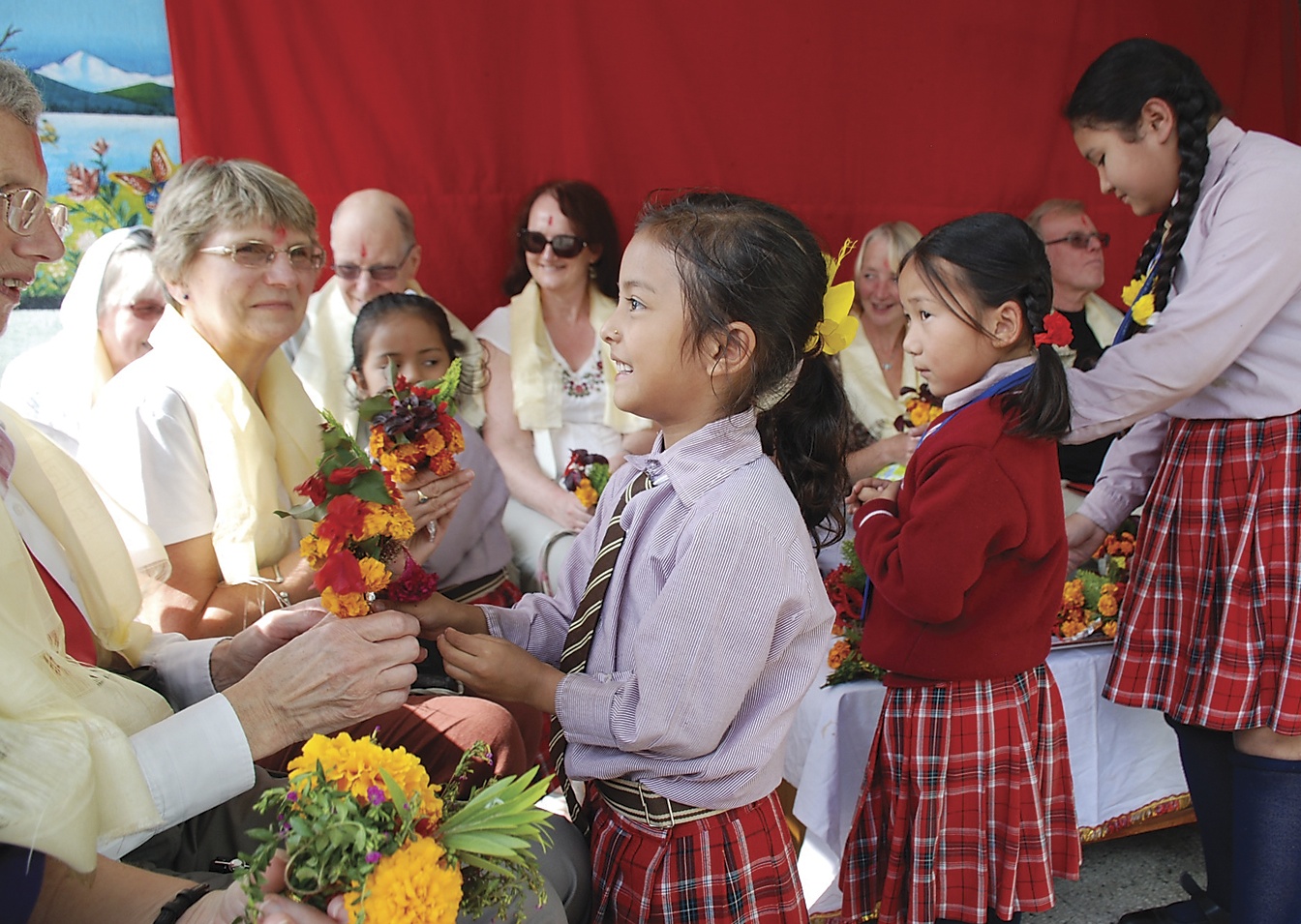 And of course, a trip to Nepal wouldn’t have been complete without a visit to
And of course, a trip to Nepal wouldn’t have been complete without a visit to 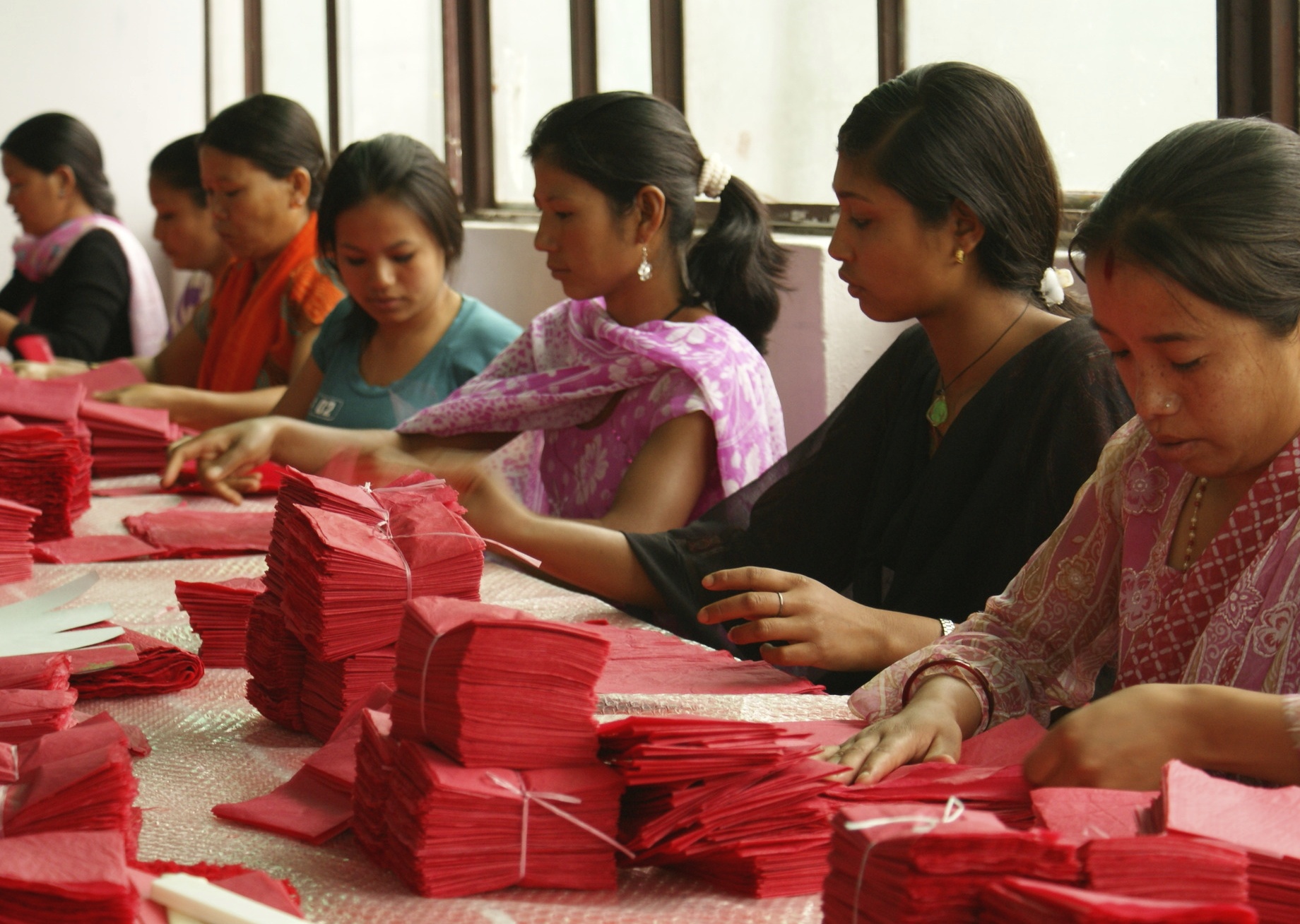 And finally, we visited the HQ of Mahaguthi, who market a range of handcrafted Nepalese wonders to the world. From weavers and embroiders to leather-workers and jewellery-makers, Mahaguthi offer traditional artisans a global audience for their heritage crafts. A highlight of the visit was meeting some of the traditional potters in their workshop on the outskirts of Kathmandu.
And finally, we visited the HQ of Mahaguthi, who market a range of handcrafted Nepalese wonders to the world. From weavers and embroiders to leather-workers and jewellery-makers, Mahaguthi offer traditional artisans a global audience for their heritage crafts. A highlight of the visit was meeting some of the traditional potters in their workshop on the outskirts of Kathmandu.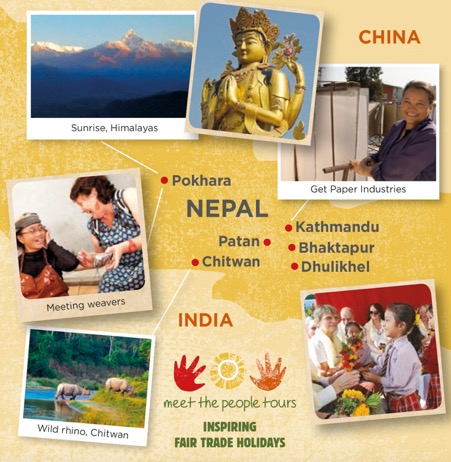 To browse the full range of Meet the People holidays have a look on our website
To browse the full range of Meet the People holidays have a look on our website 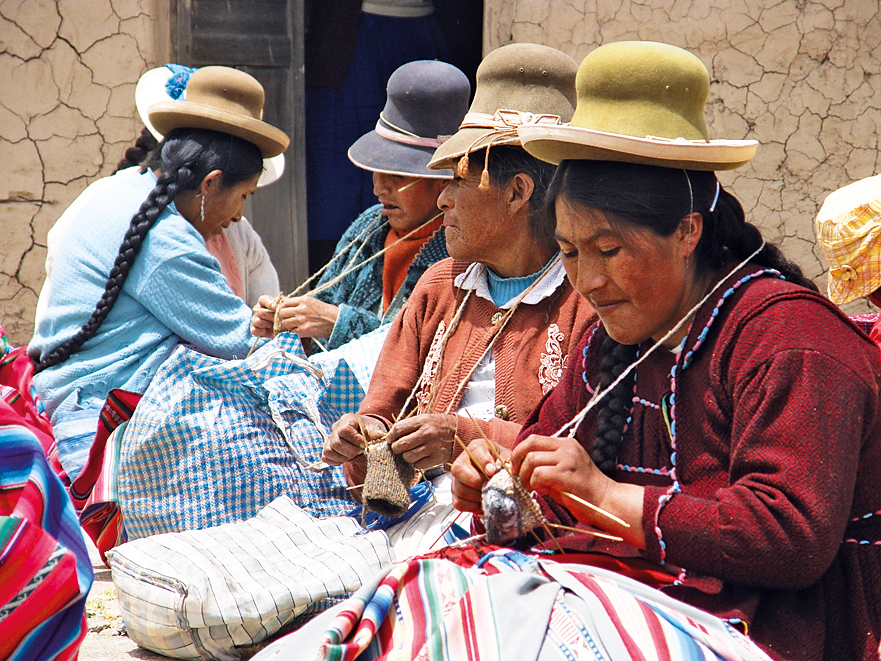
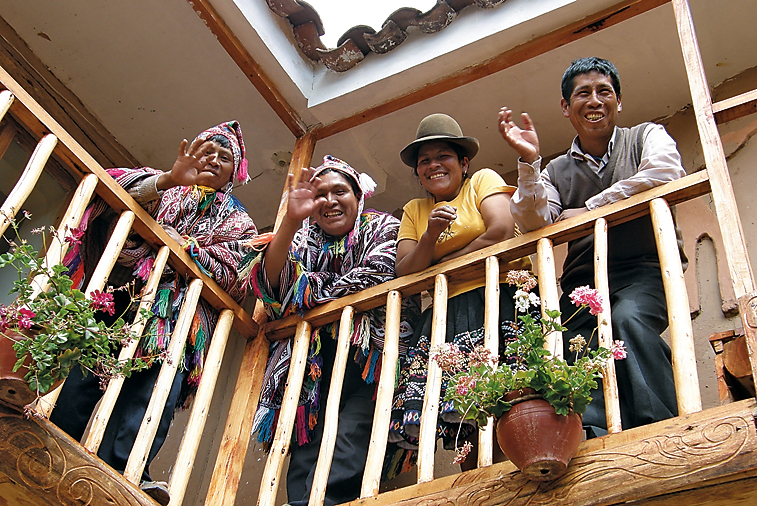


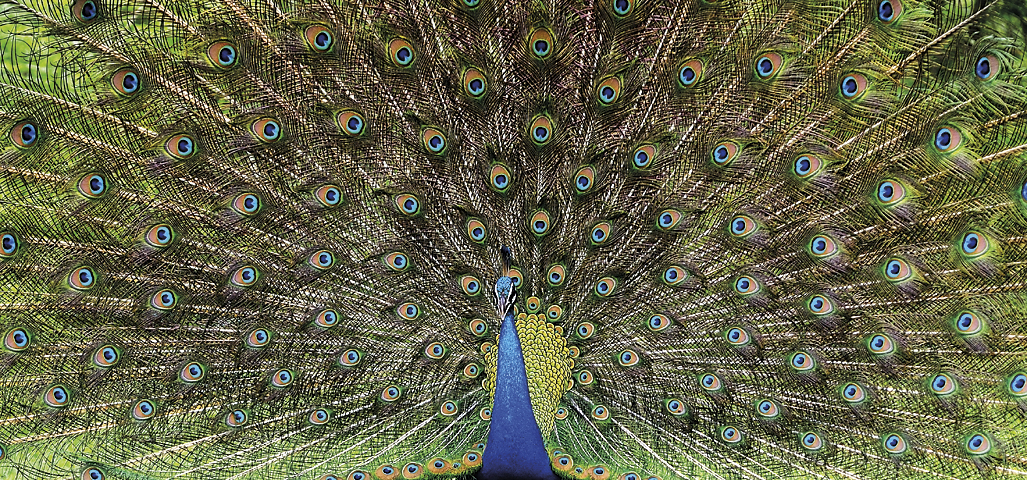
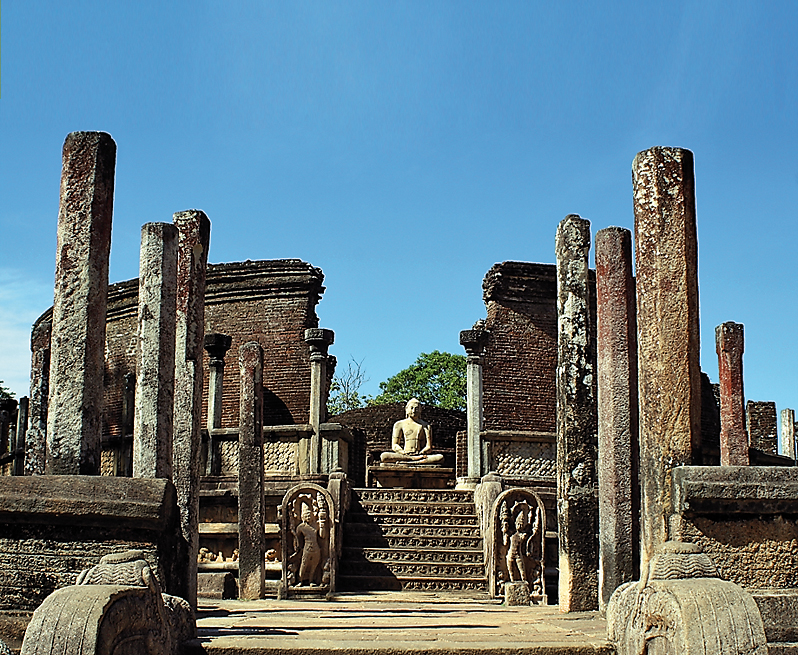

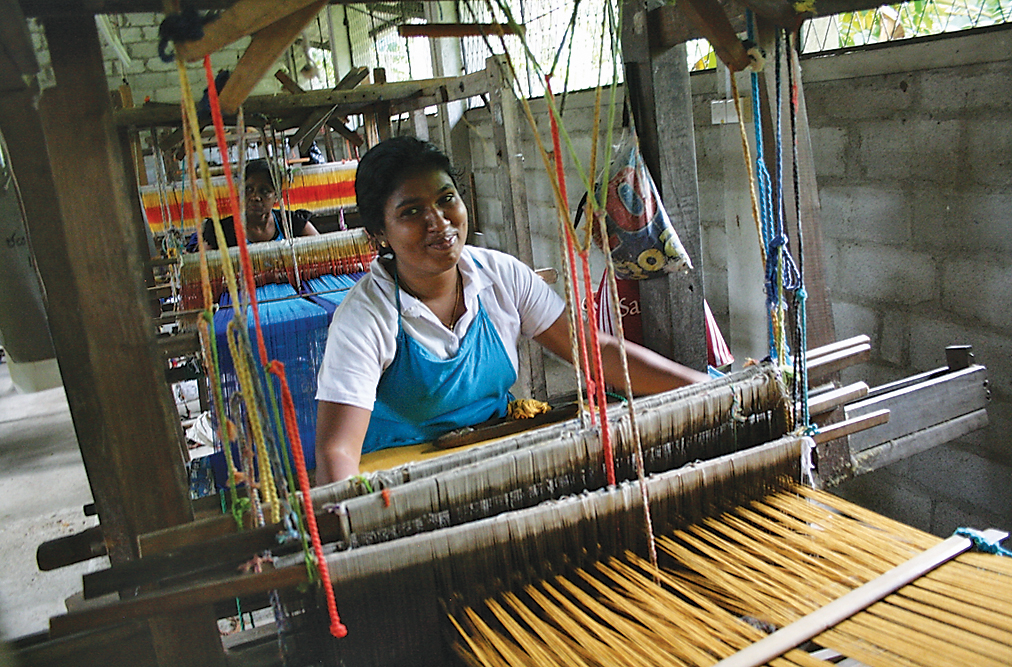 We could go on the write about: the compost coir block factory where the waste husks of coconuts are transformed into peat-free compost for UK gardens; the Maximus elephant dung factory where elephant dung comes in at one end and beautiful paper products come out of the other; and Ma’s Spice Factory where we saw the production process and sampled the end product when they served us lunch. They even persuaded us to try our hand at cooking!
We could go on the write about: the compost coir block factory where the waste husks of coconuts are transformed into peat-free compost for UK gardens; the Maximus elephant dung factory where elephant dung comes in at one end and beautiful paper products come out of the other; and Ma’s Spice Factory where we saw the production process and sampled the end product when they served us lunch. They even persuaded us to try our hand at cooking!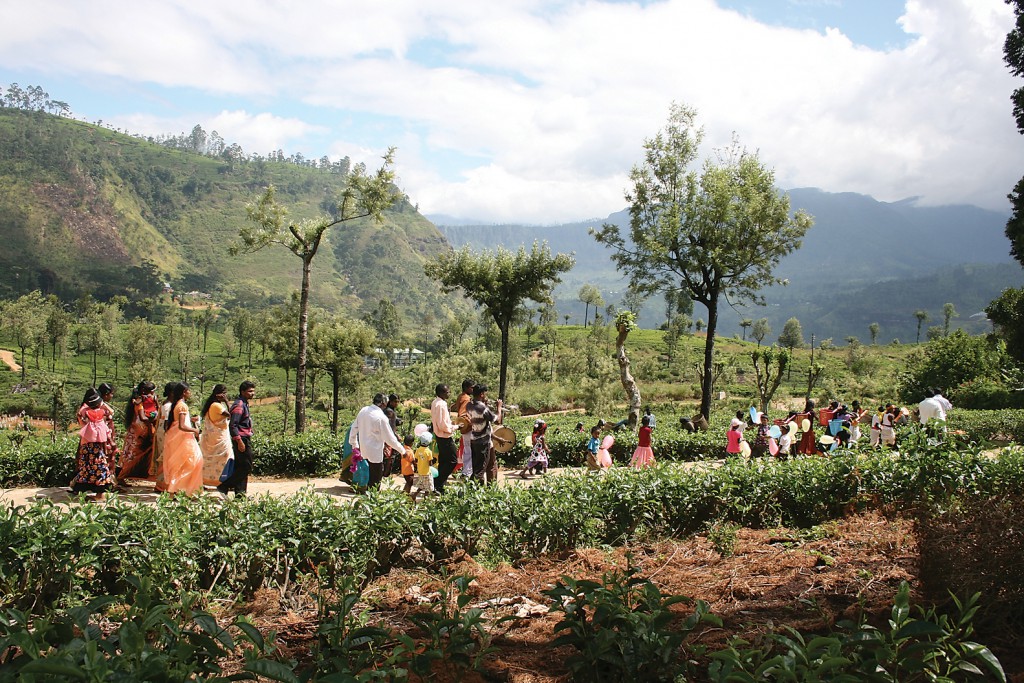 Perhaps most of all, we became aware of the hard daily work done by thousands of people so that we can enjoy products so well-designed, well-made, and beautifully packaged that they are attractive to us in the West who have such a wide range of goods to choose from. It is certainly worth paying that bit extra to buy fair trade!
Perhaps most of all, we became aware of the hard daily work done by thousands of people so that we can enjoy products so well-designed, well-made, and beautifully packaged that they are attractive to us in the West who have such a wide range of goods to choose from. It is certainly worth paying that bit extra to buy fair trade!